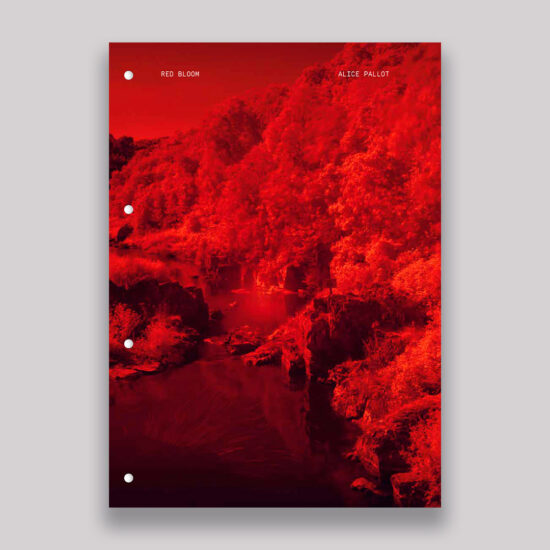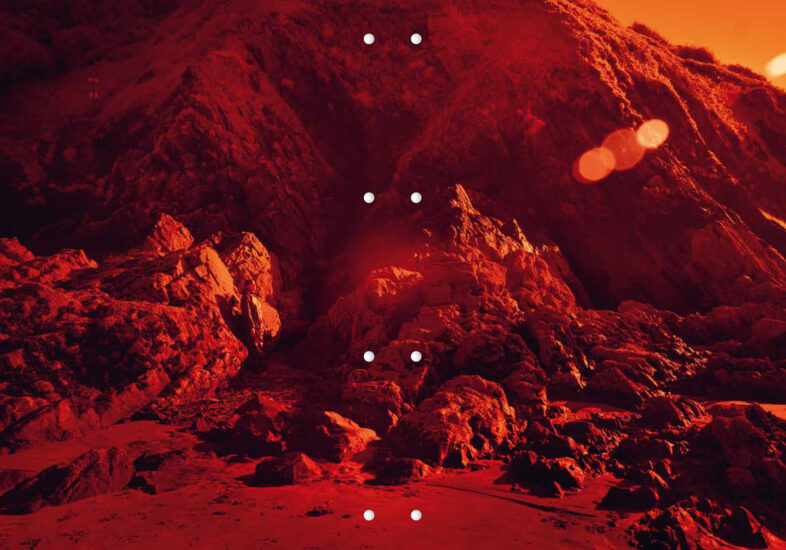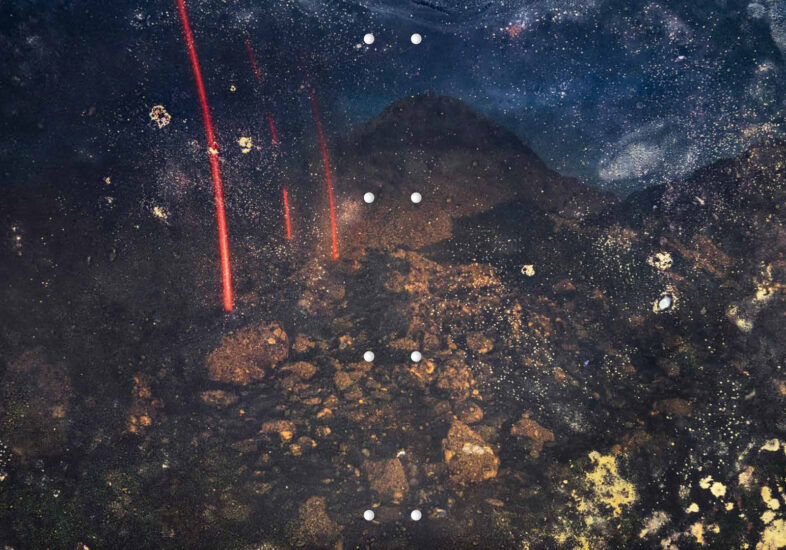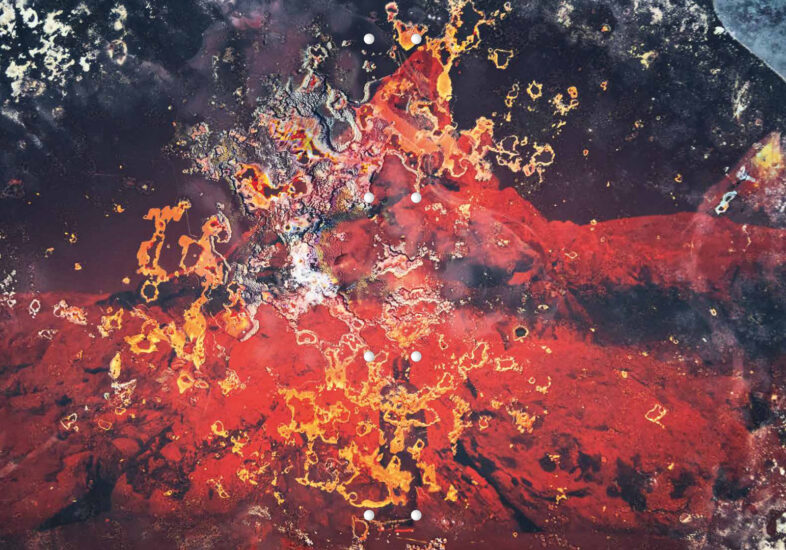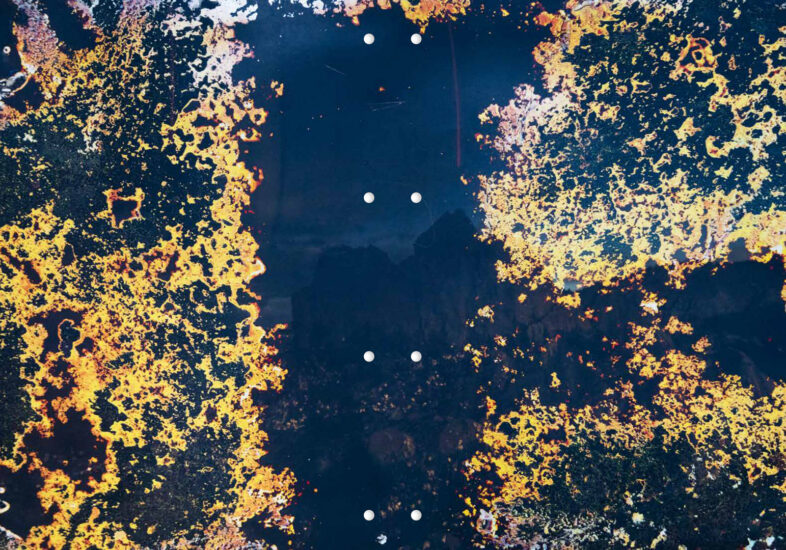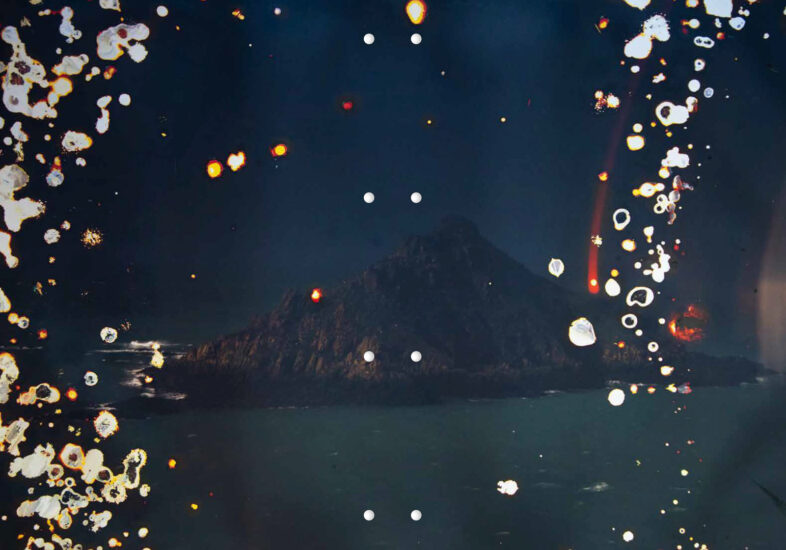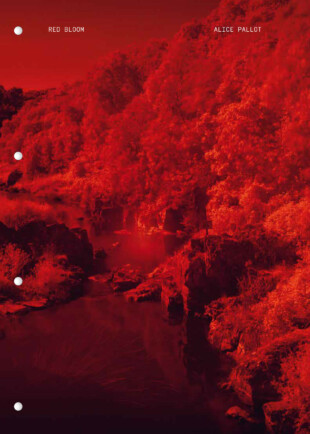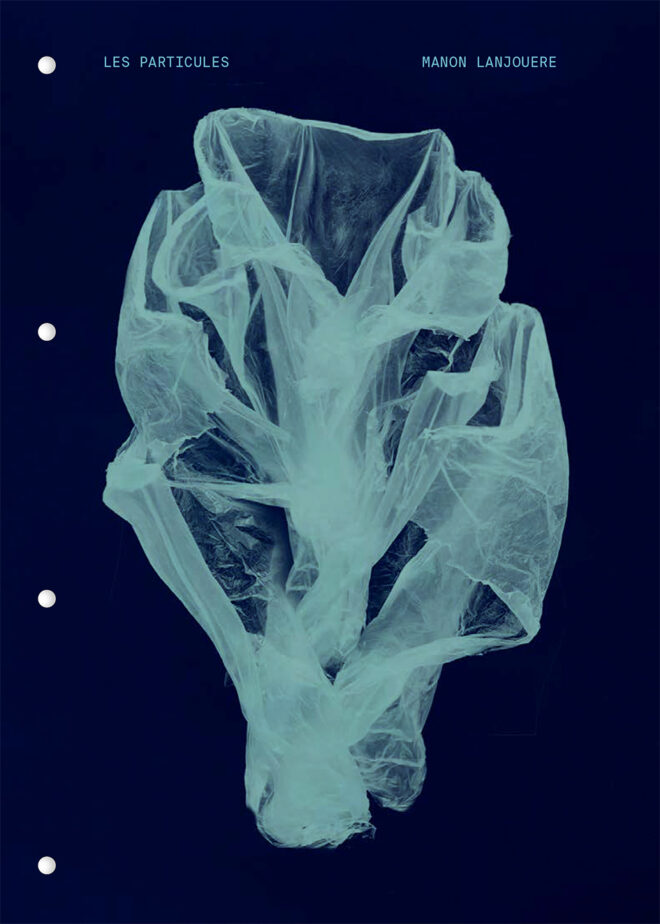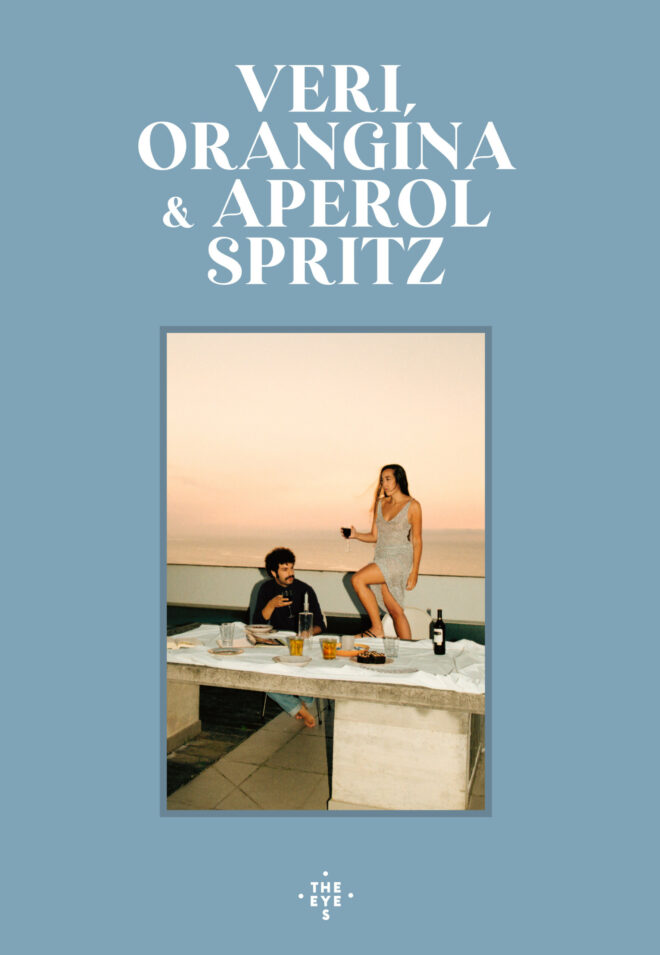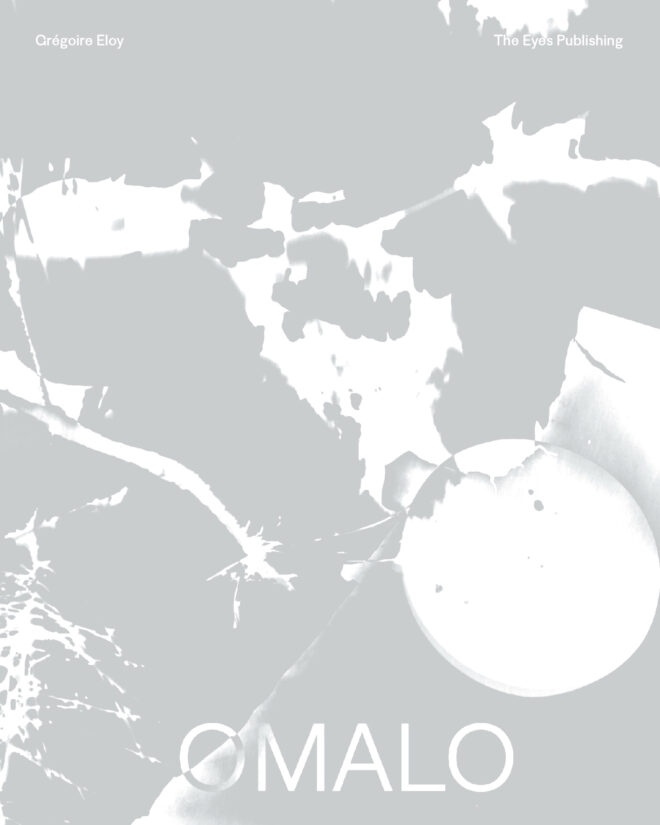Red Bloom
The second in the Civis Maritimus collection.
Red Bloom is the second part of a photographic and artistic project dedicated to climate change and, in particular, the proliferation of green algae in the Côtes d’Armor region of France.
Red Bloom, The crucial question of the collapse of our eco-system seen through the prism of a photographic eye.
The result of research, expeditions and experiments, the works presented here bear witness to the deleterious impact of climate change on our eco-systems. The prints, with their powerful aesthetic and science-fictional inspiration, are dazzling in their beauty and lucidity. It’s an artistic statement in dialogue with science, touching each and every one of us at the heart of what we are: part of the living world.
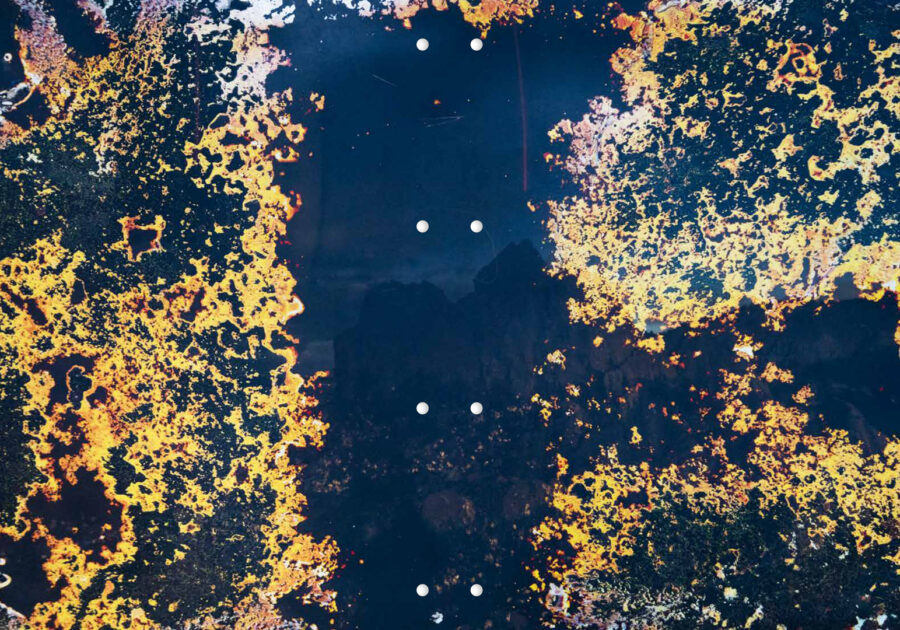
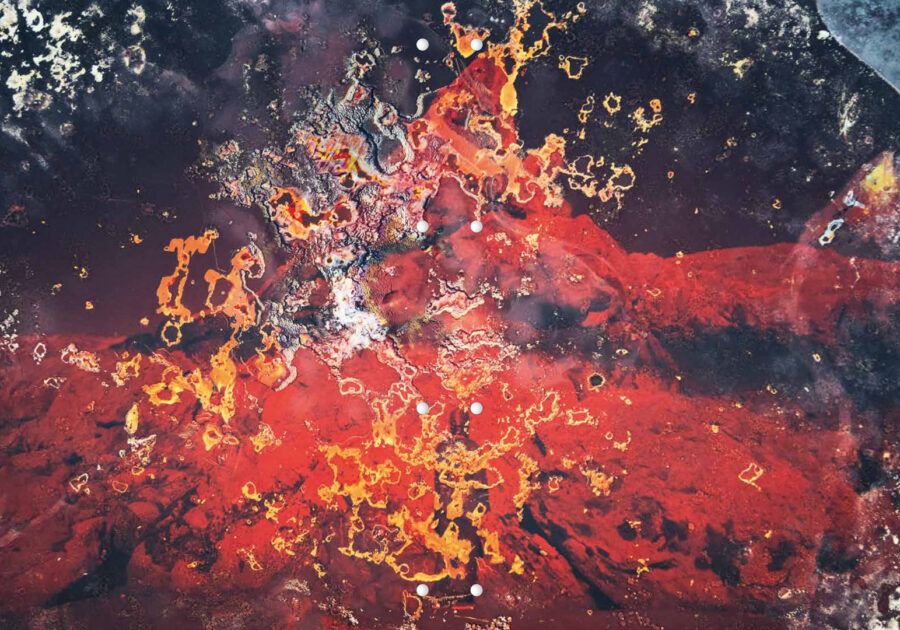
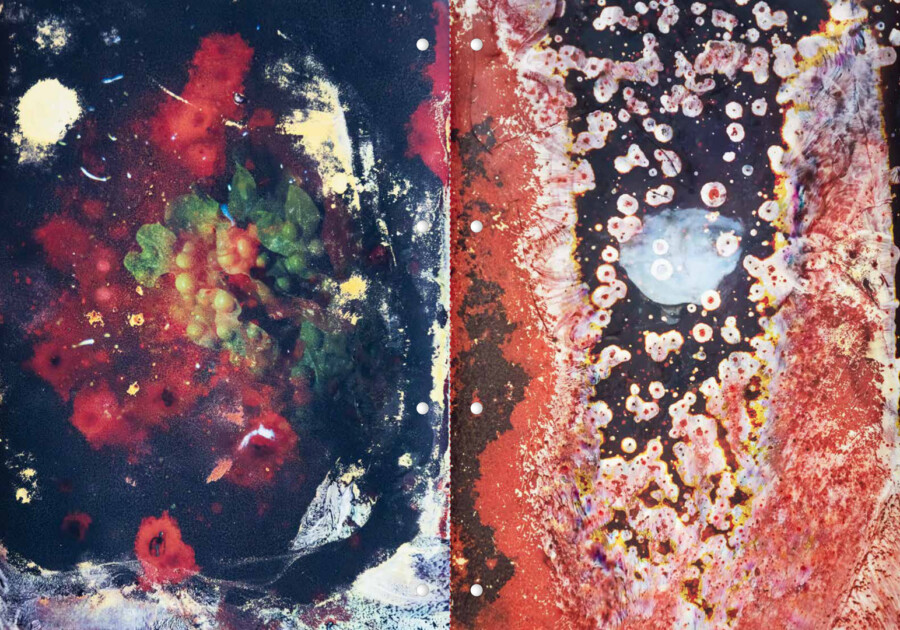
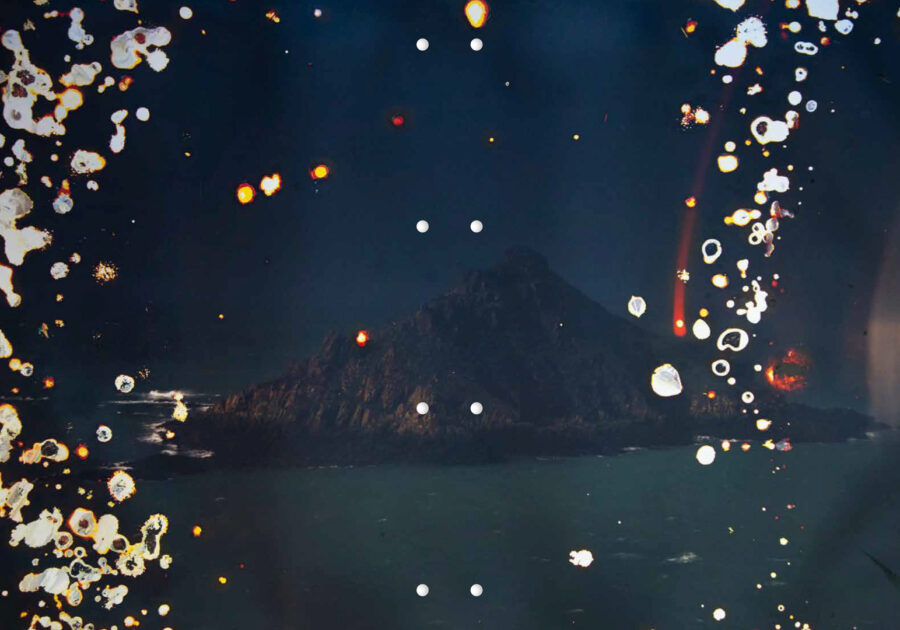
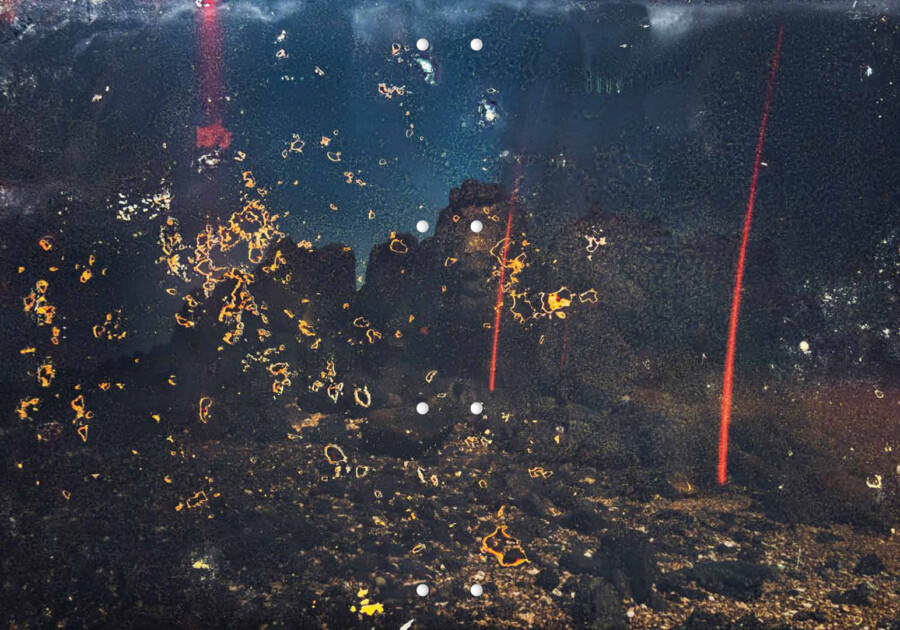
Photographed by the artist using infrared light, the green algae turned the colour of blood, the colour of the first Egyptian plague that struck the Nile over three thousand years ago.
LUCE LEBART
EXTRACT FROM THE PREFACE
Through hundreds of images, Alice Pallot returns to the very essence of the photographic process: making visible what the human eye alone cannot perceive.
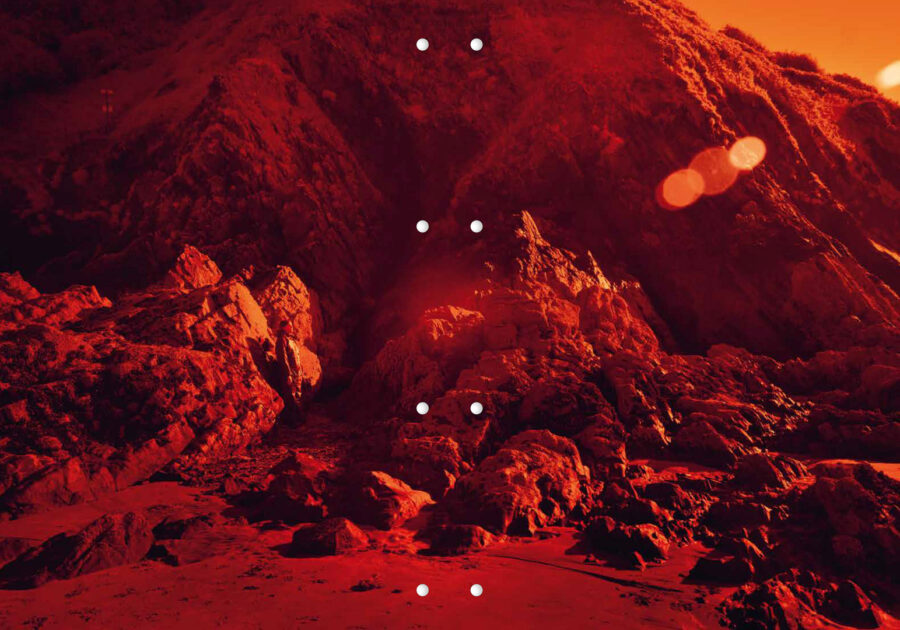
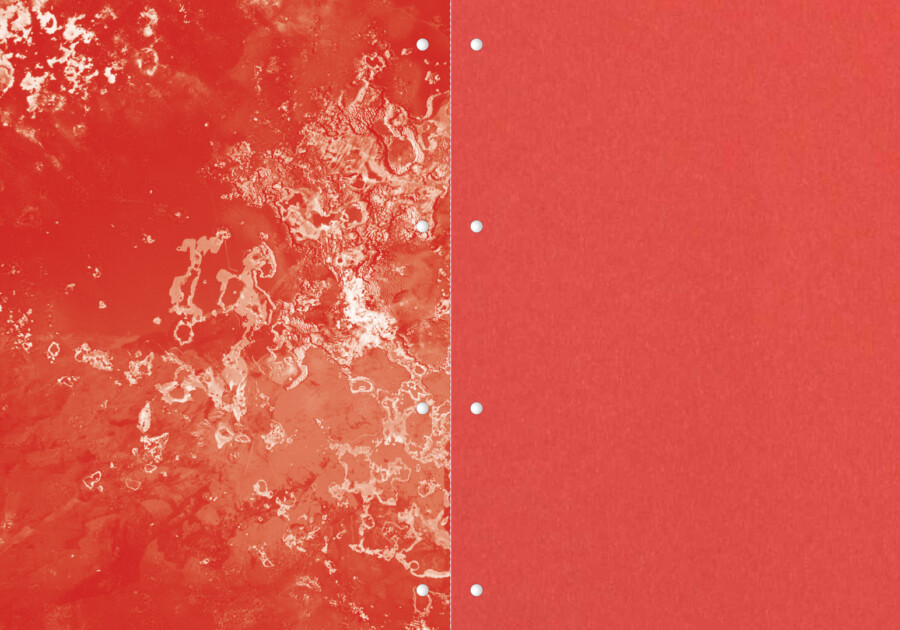
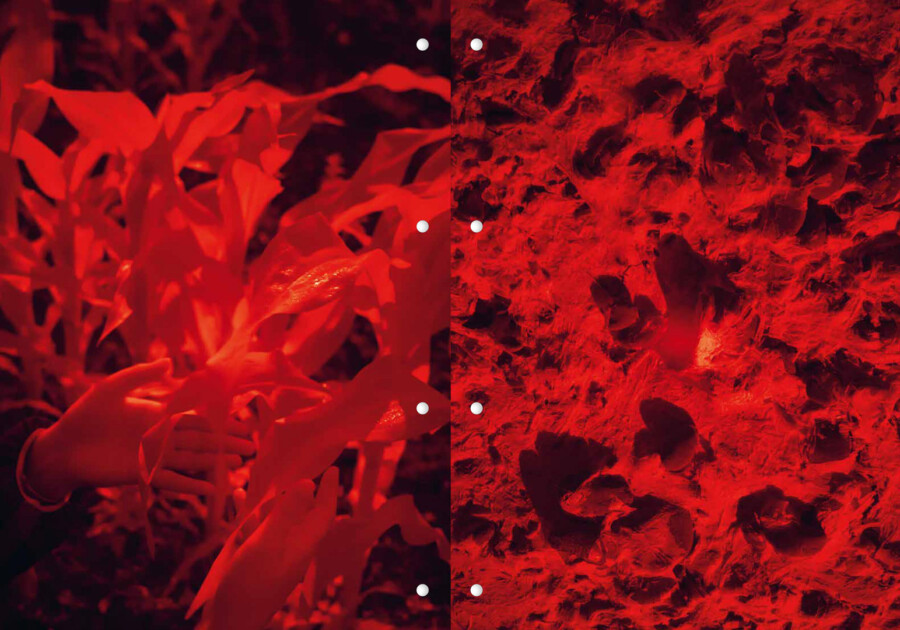
In this series, she proposes to materialise the sun’s red rays, which contribute to the development of toxic algae. Each work bears witness to an ecosystem threatened by the putrefaction of plants. The creation process takes several weeks: cultures grow on the prints and it is the toxicity itself that is embodied in the photograph and becomes the substrate for the algae.

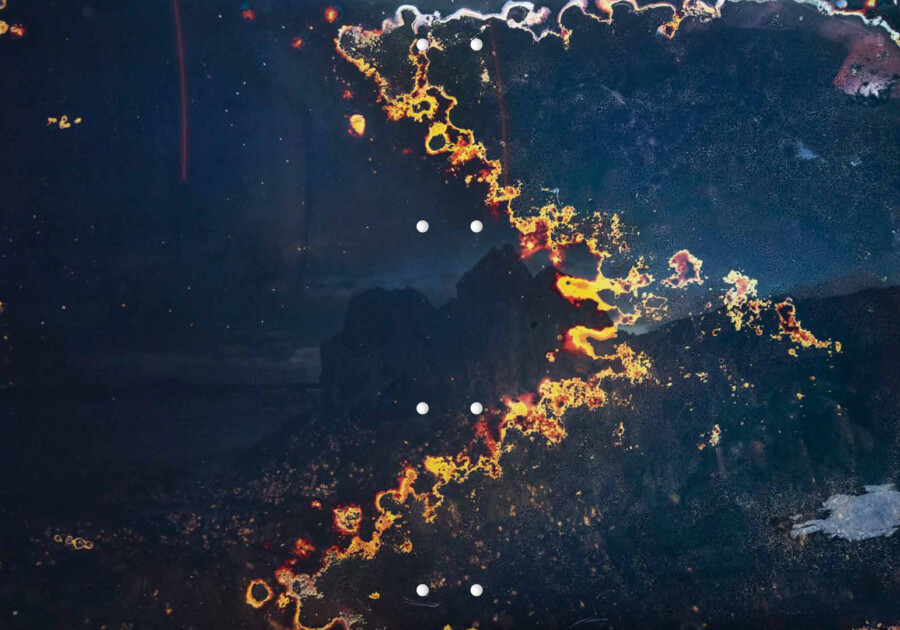
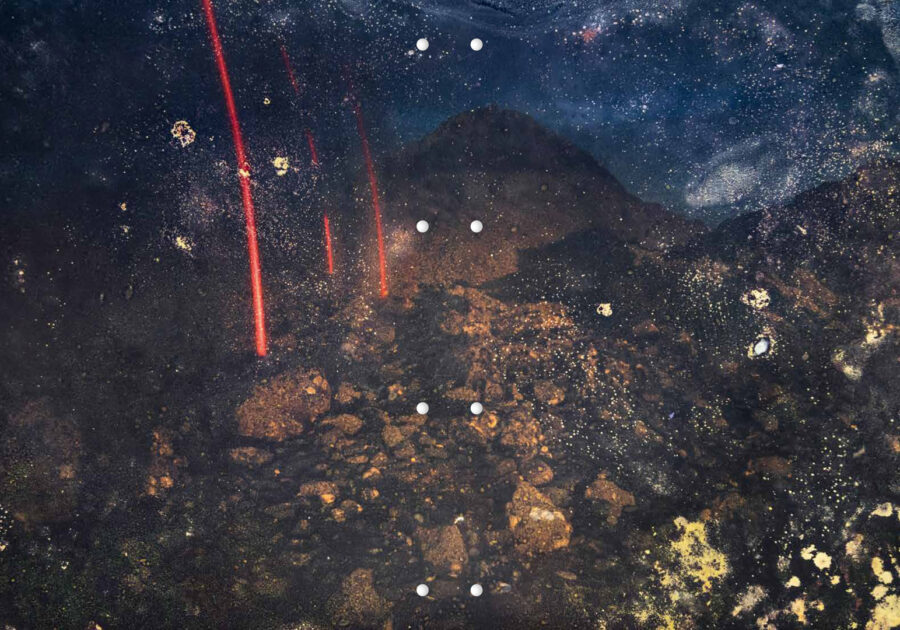
My artistic approach is primarily aimed at highlighting a danger intrinsic to the proliferation of algae and linked to human activity.
ALICE PALLOT
FROM THE CONVERSATION WITH Andreina de Bei
Alice Pallot’s approach is to alert the public through the emotional impact of her work. Faced with these prints of great plastic beauty, the viewer experiences first-hand the toxicity and results of advanced scientific research. Alice Pallot conducts anticipatory surveys of the areas she investigates alongside scientists and militant ecologists.
Including the book accompanied by a unique fragment on lambda paper altered by toxic algae
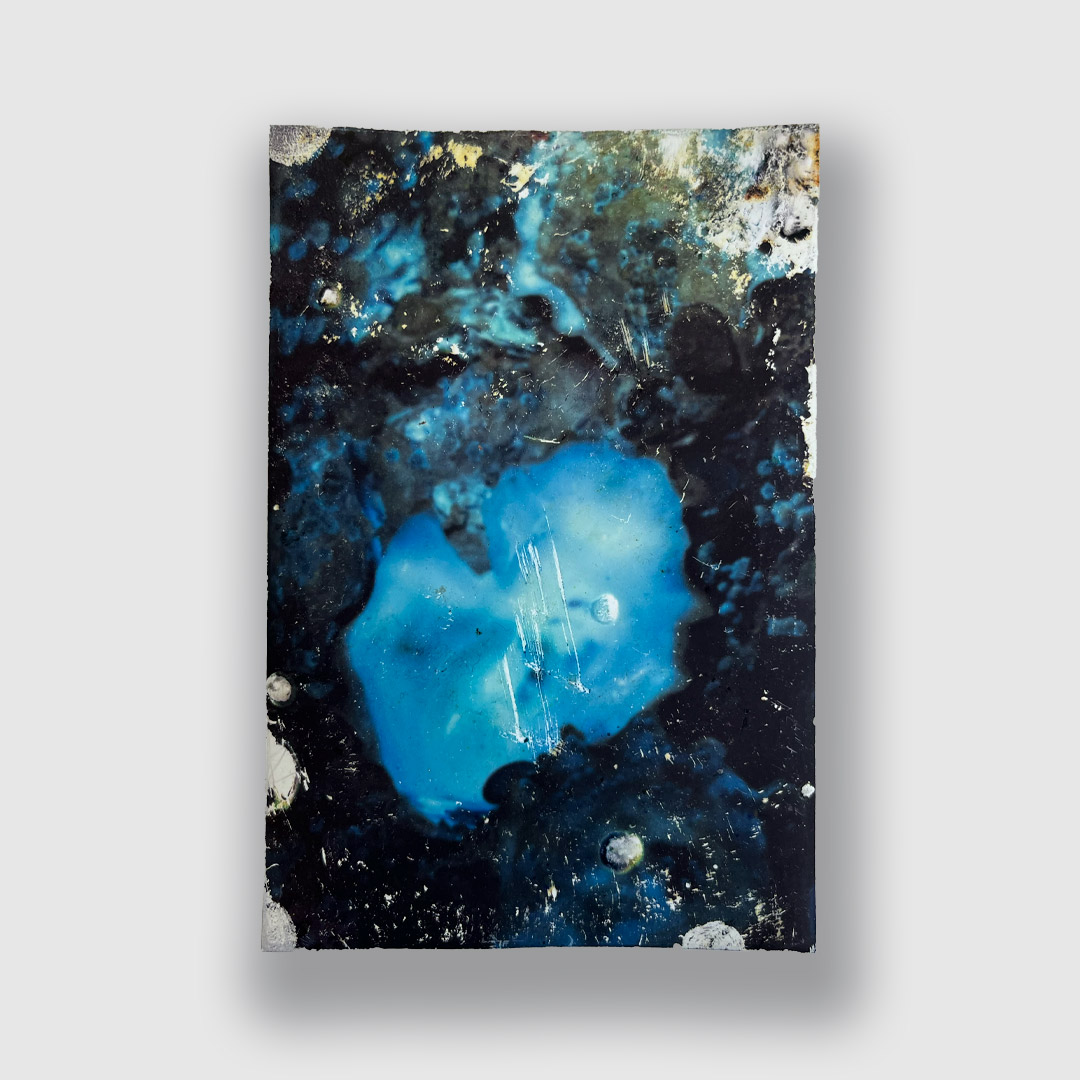
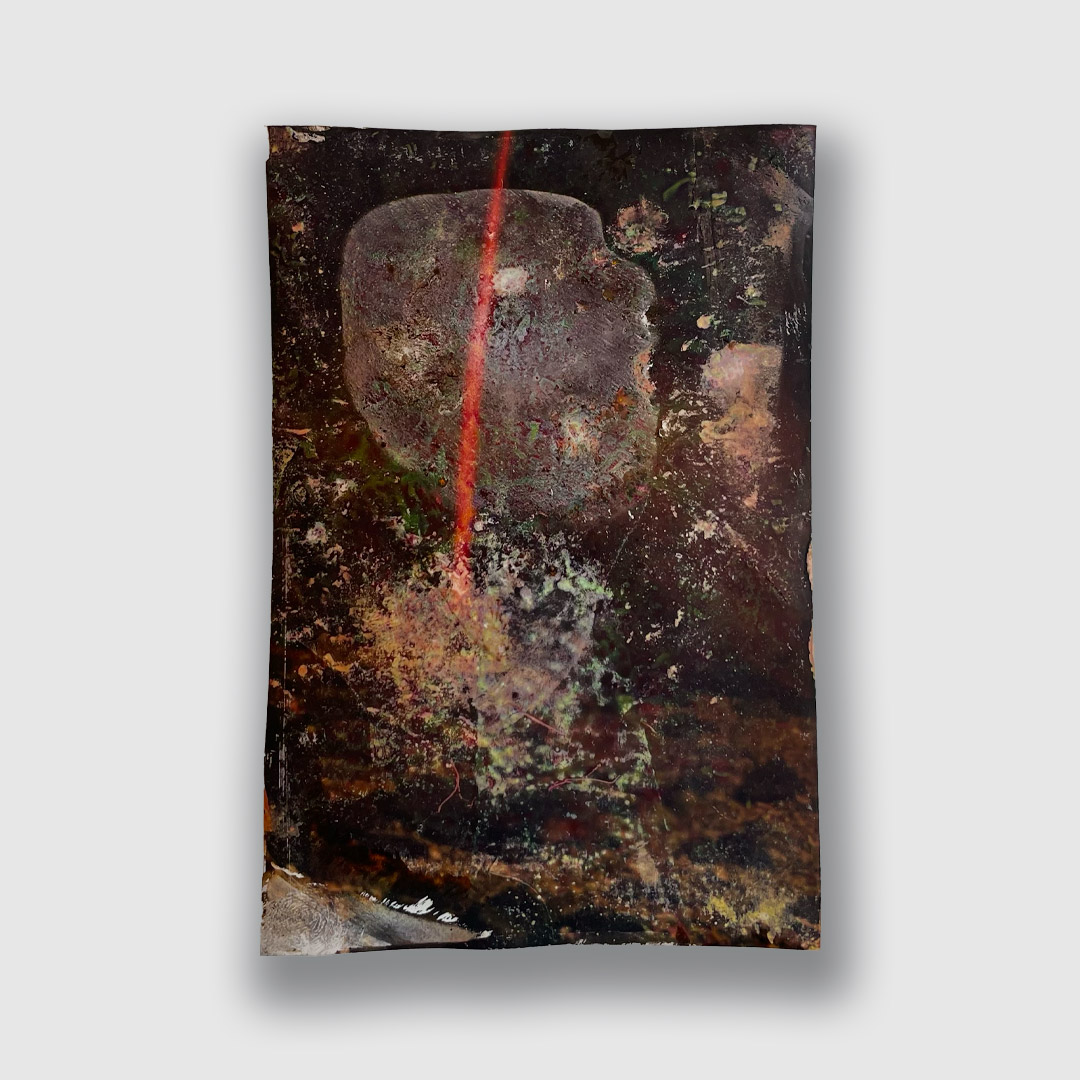
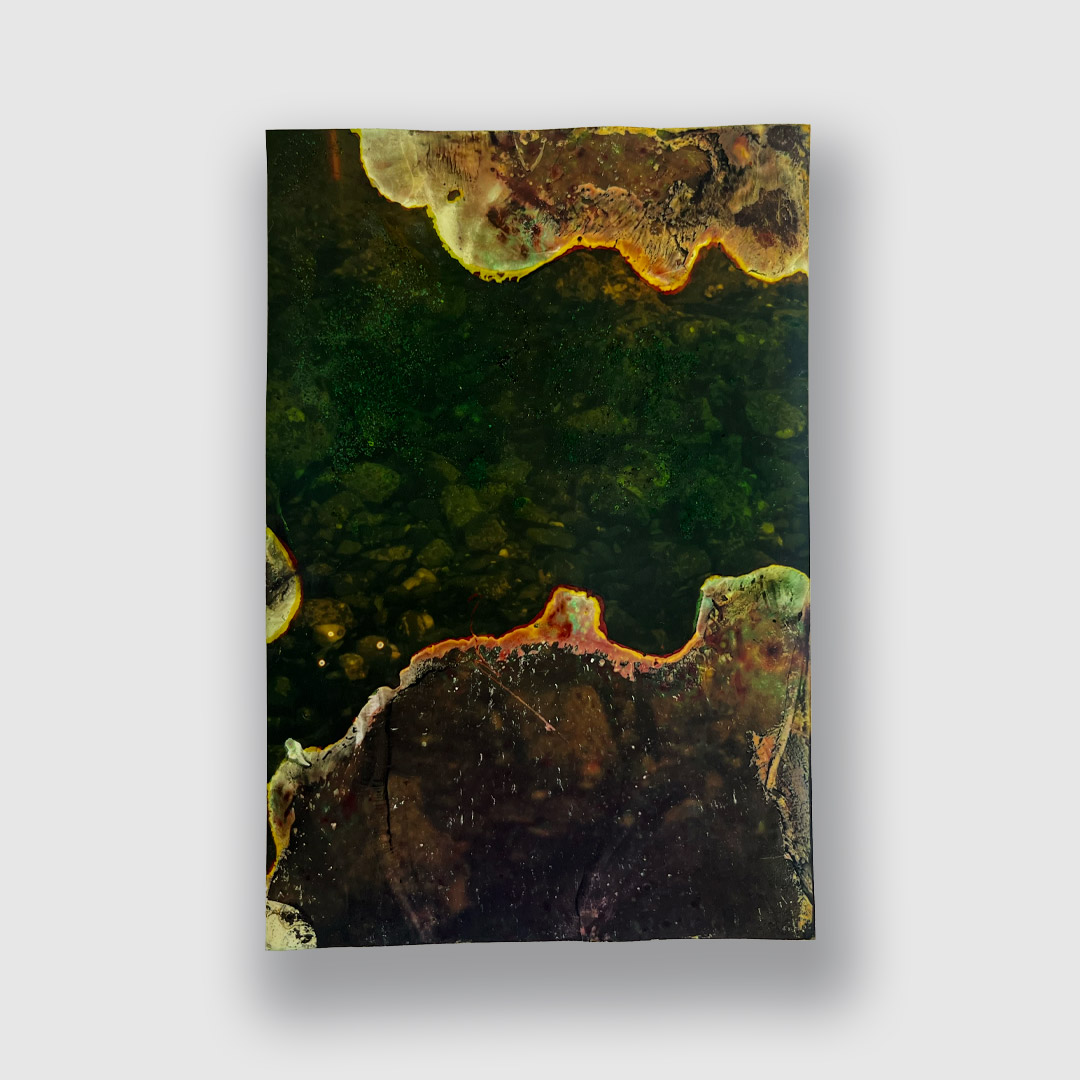
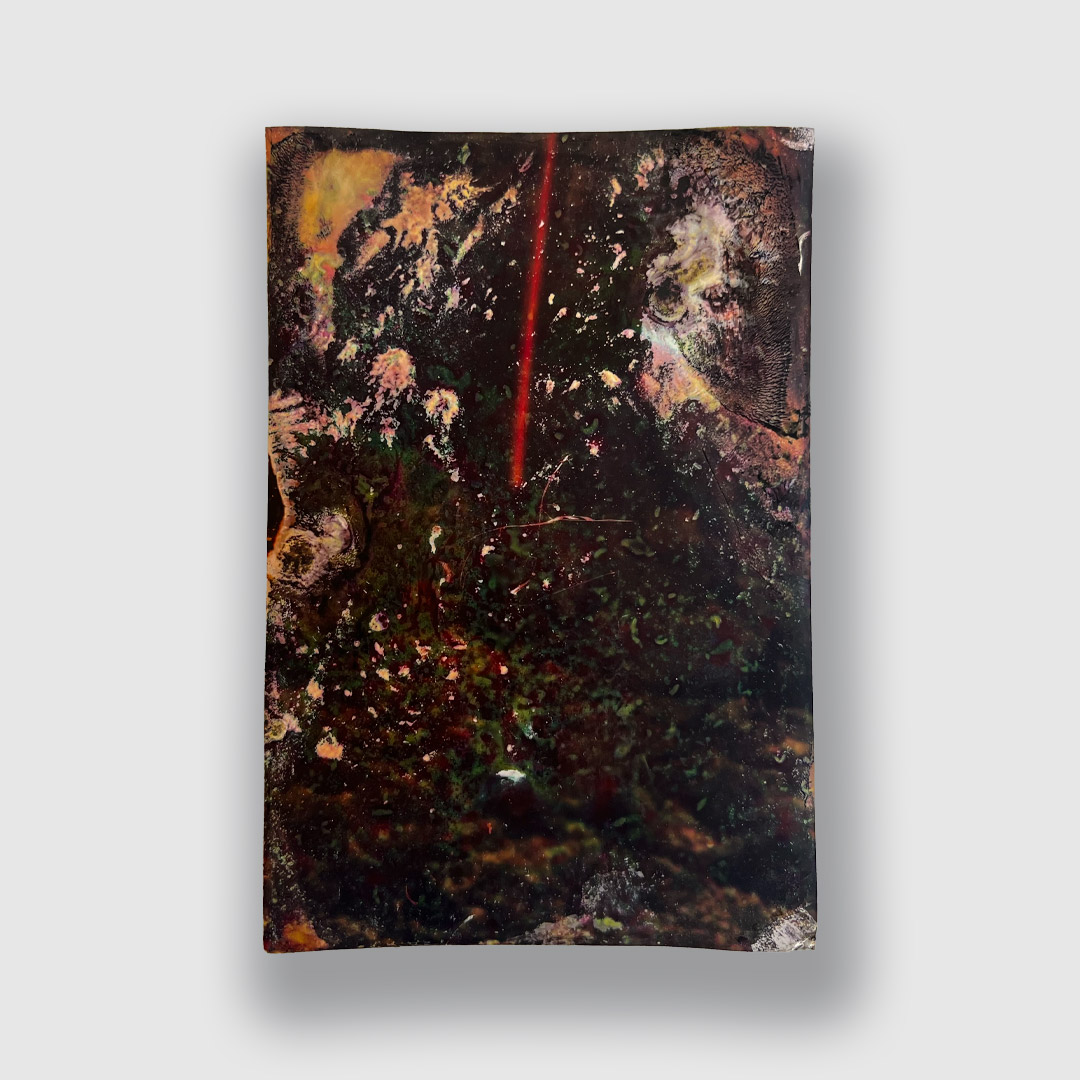
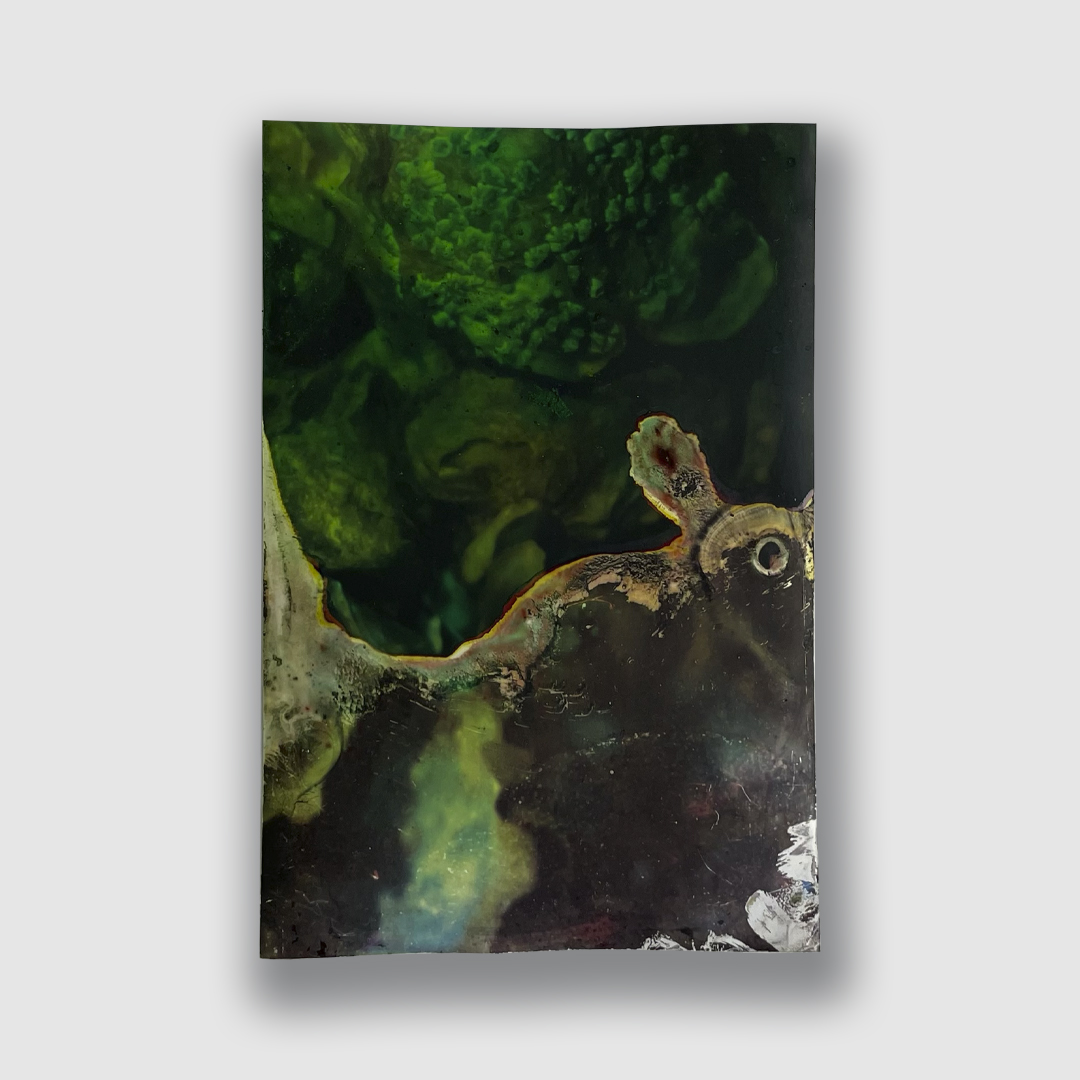
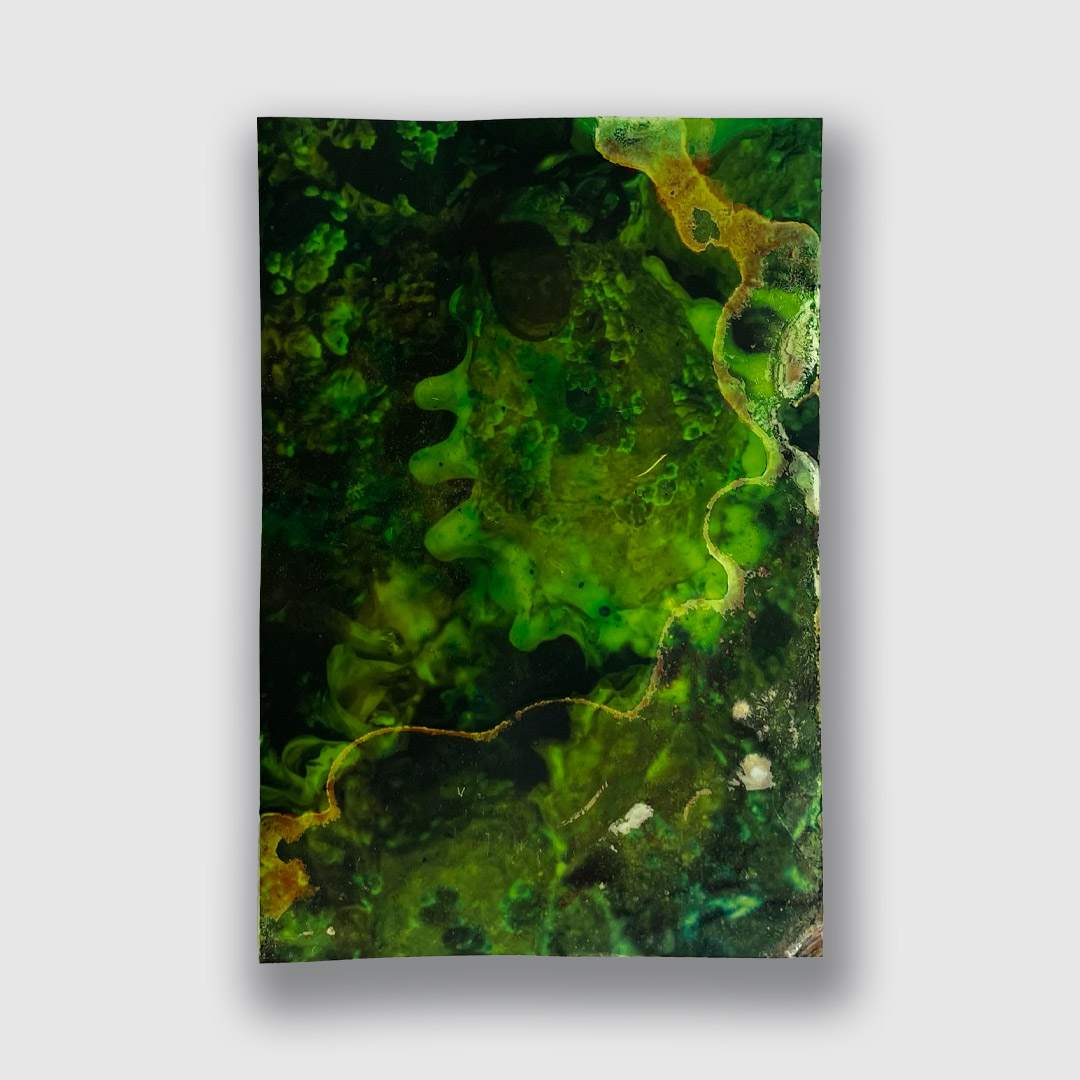
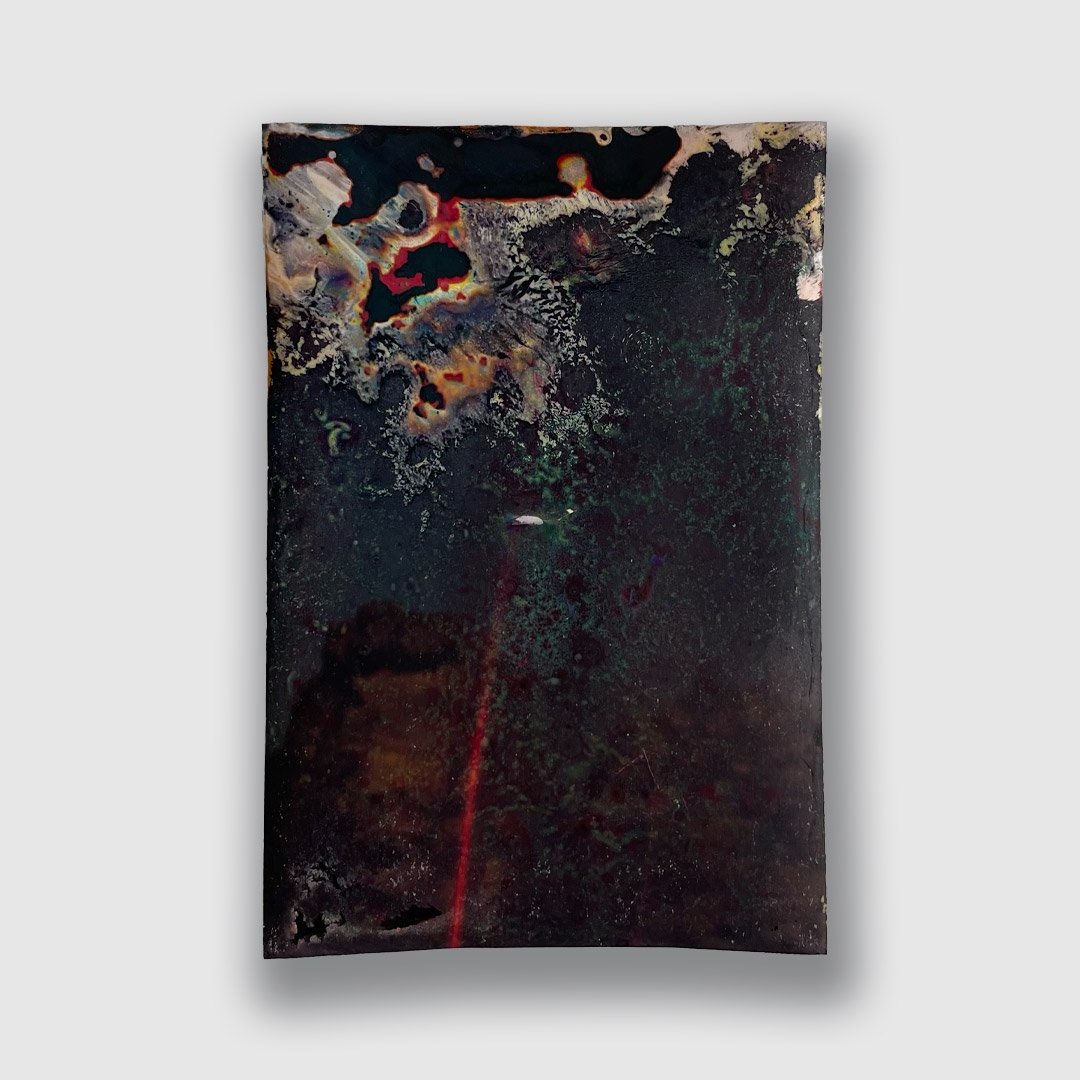
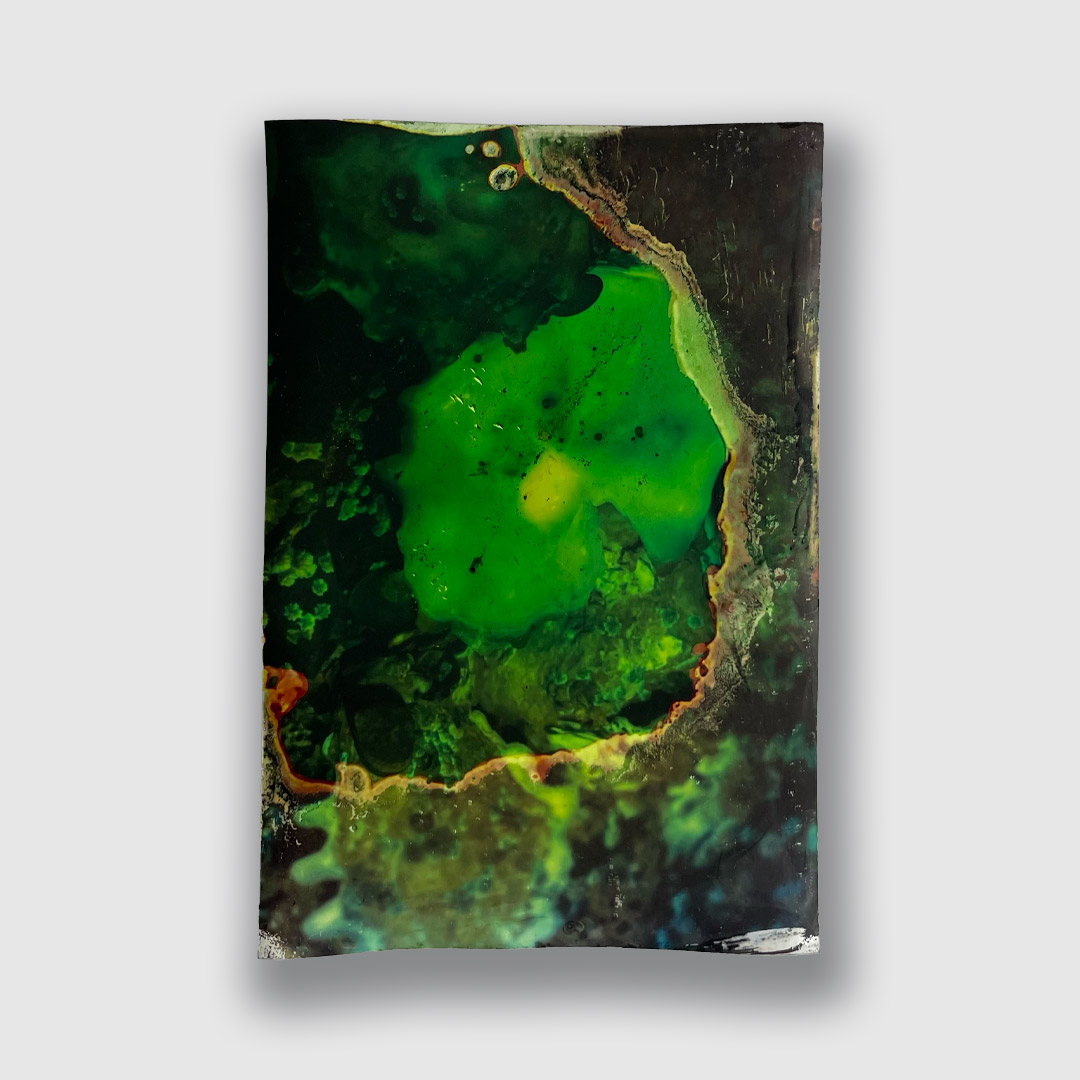
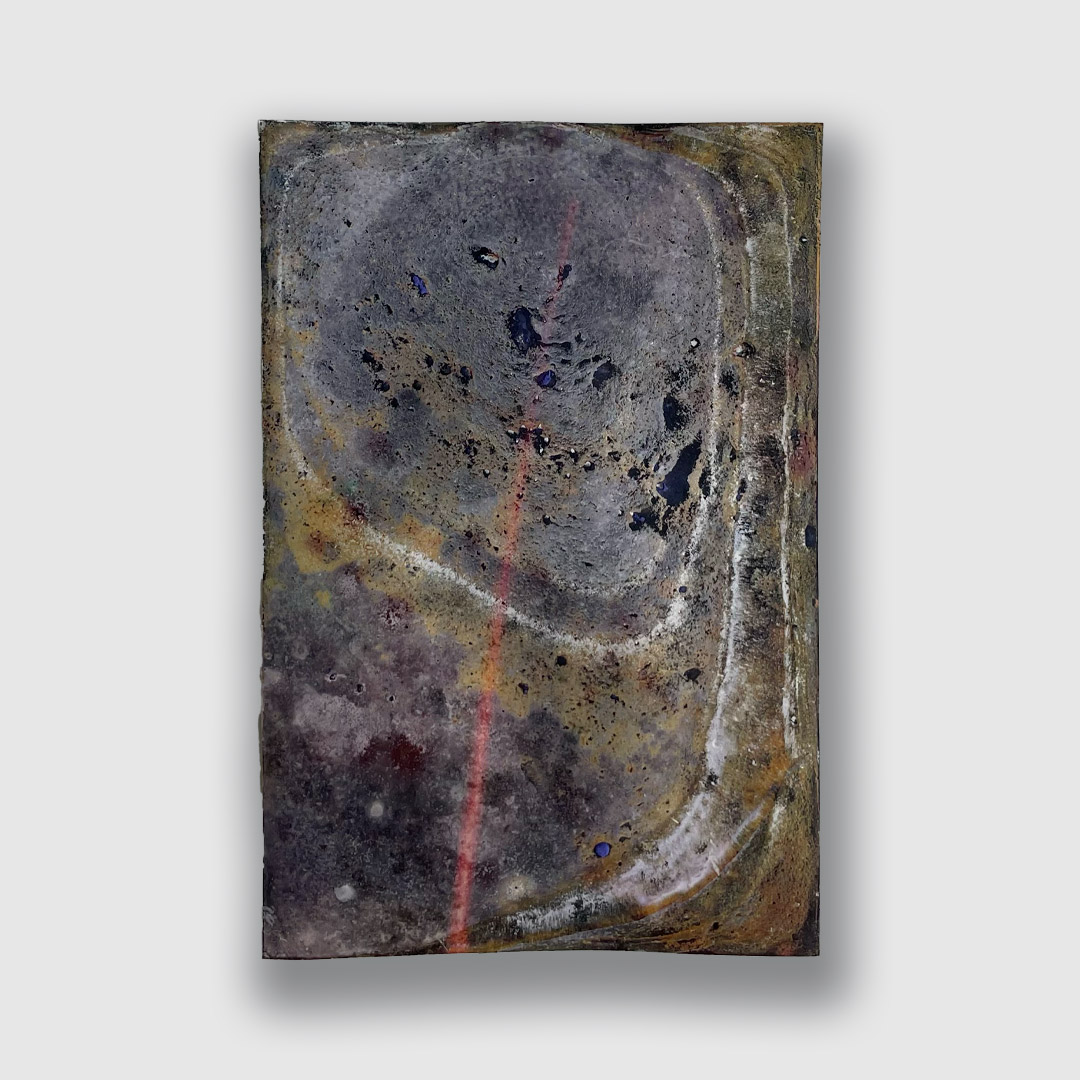
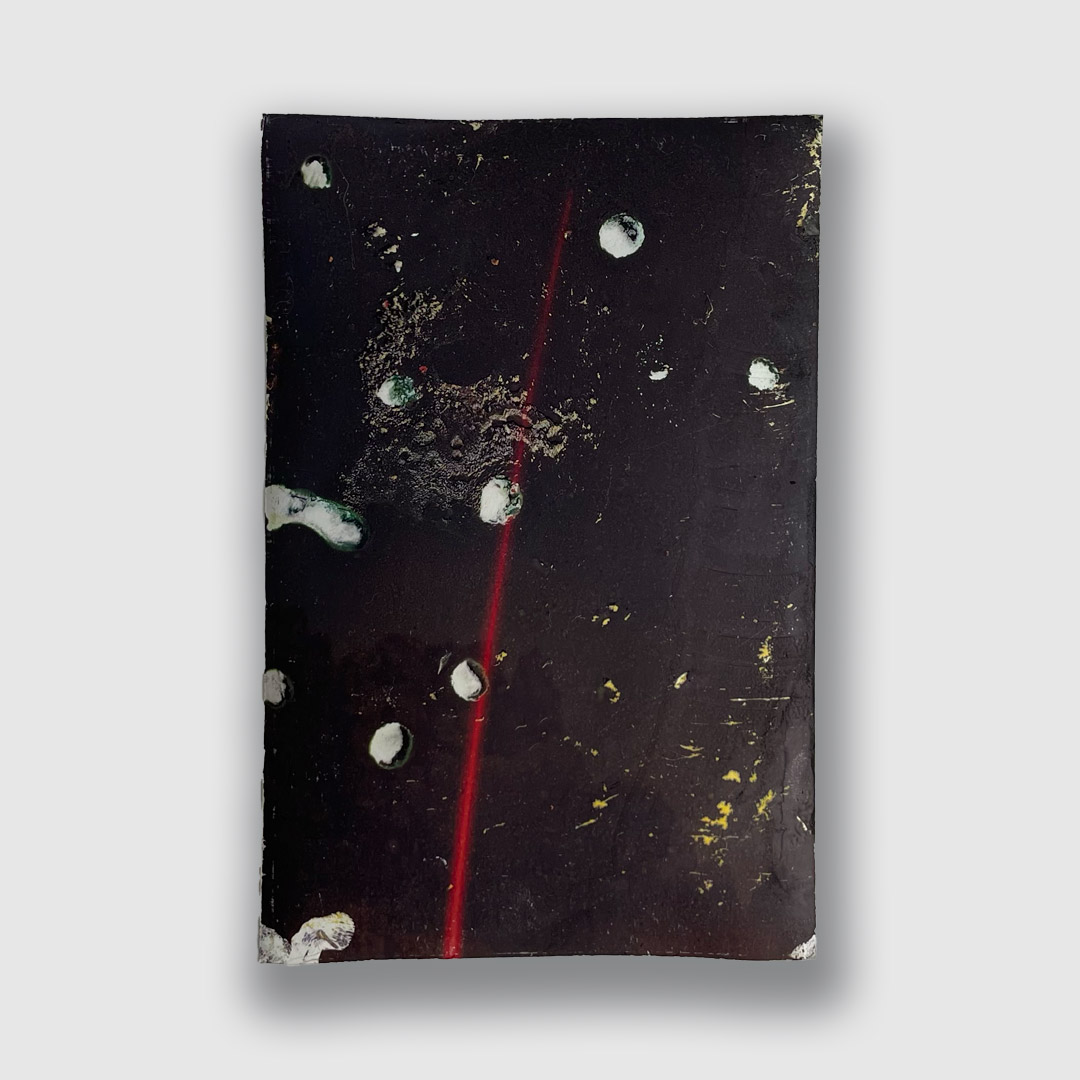
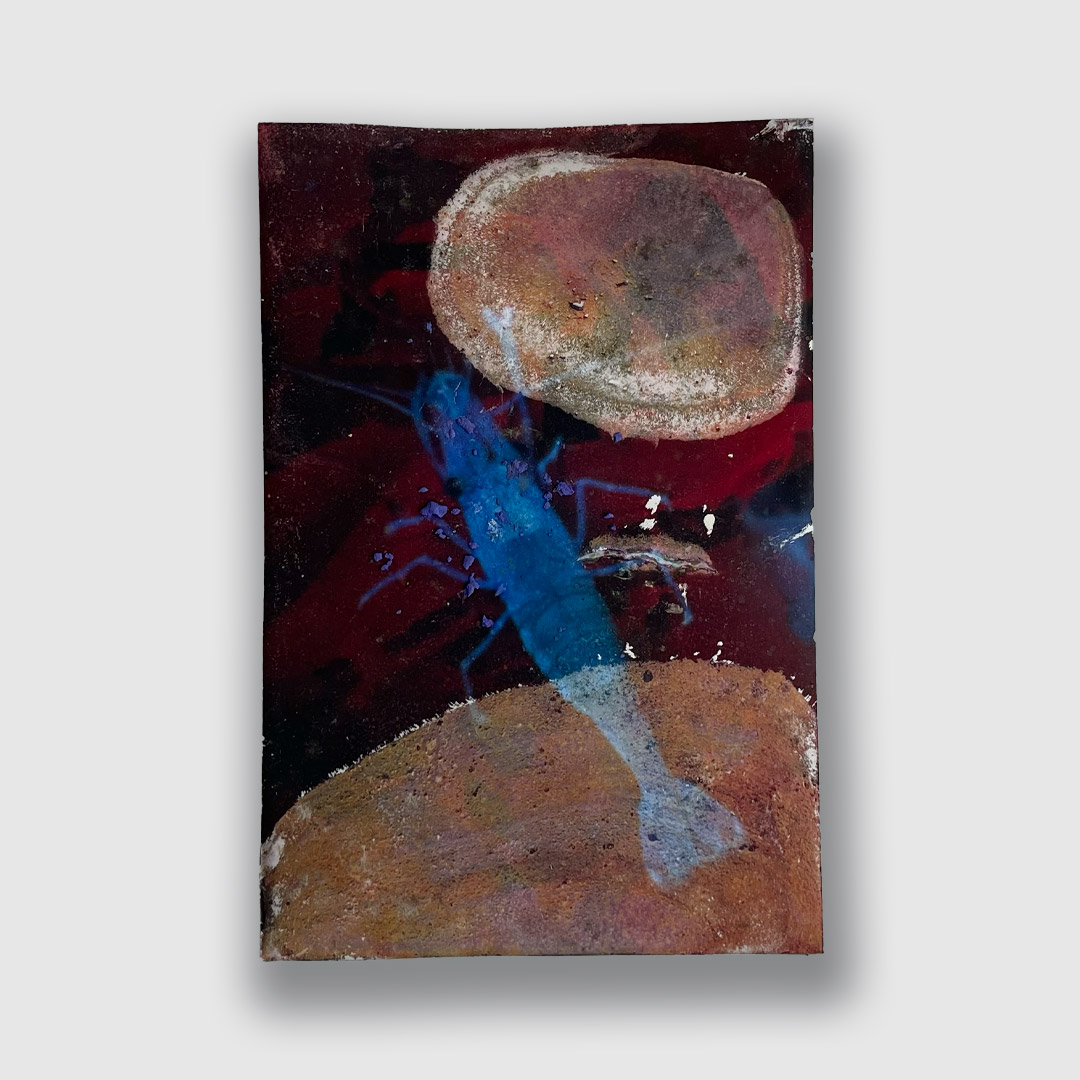
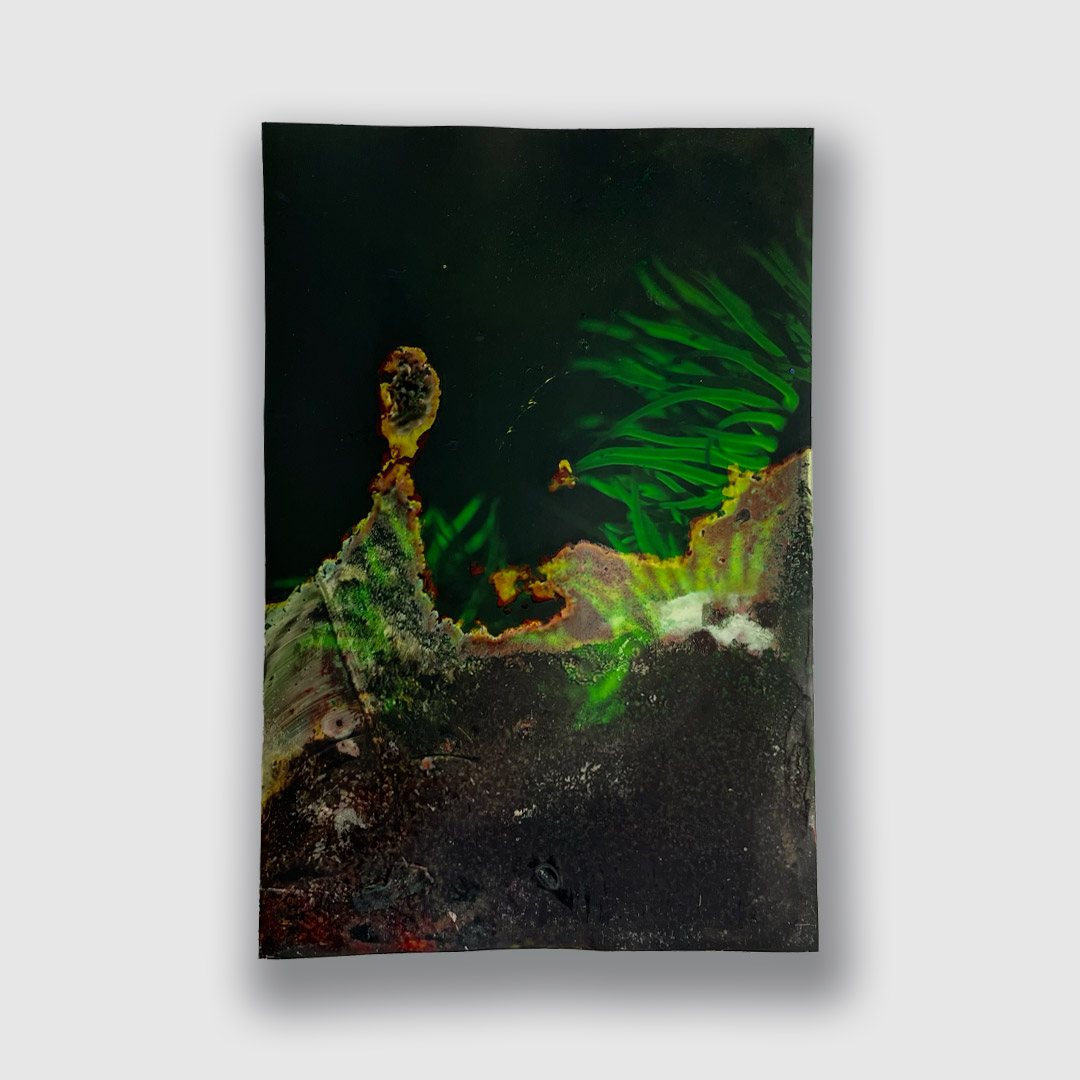
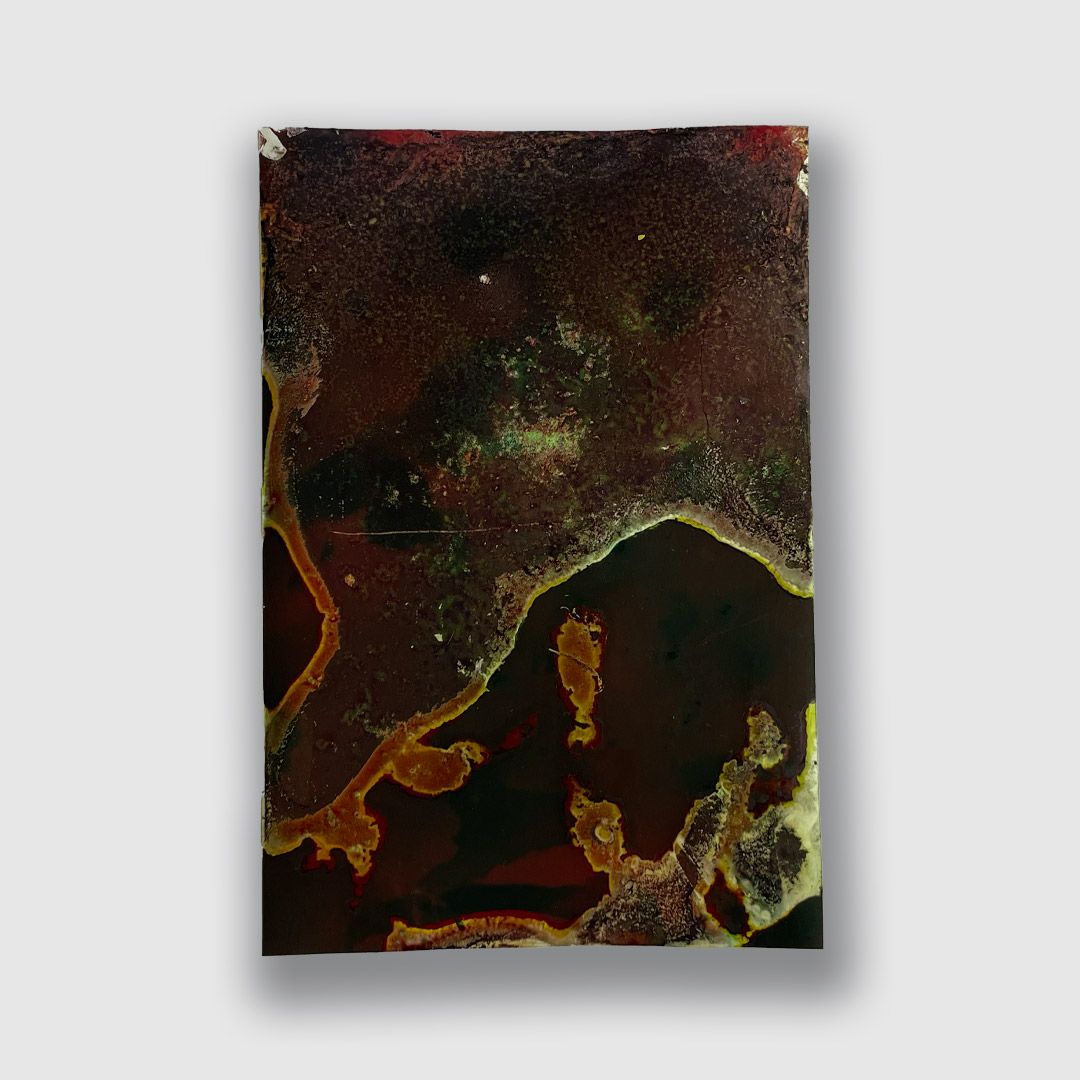
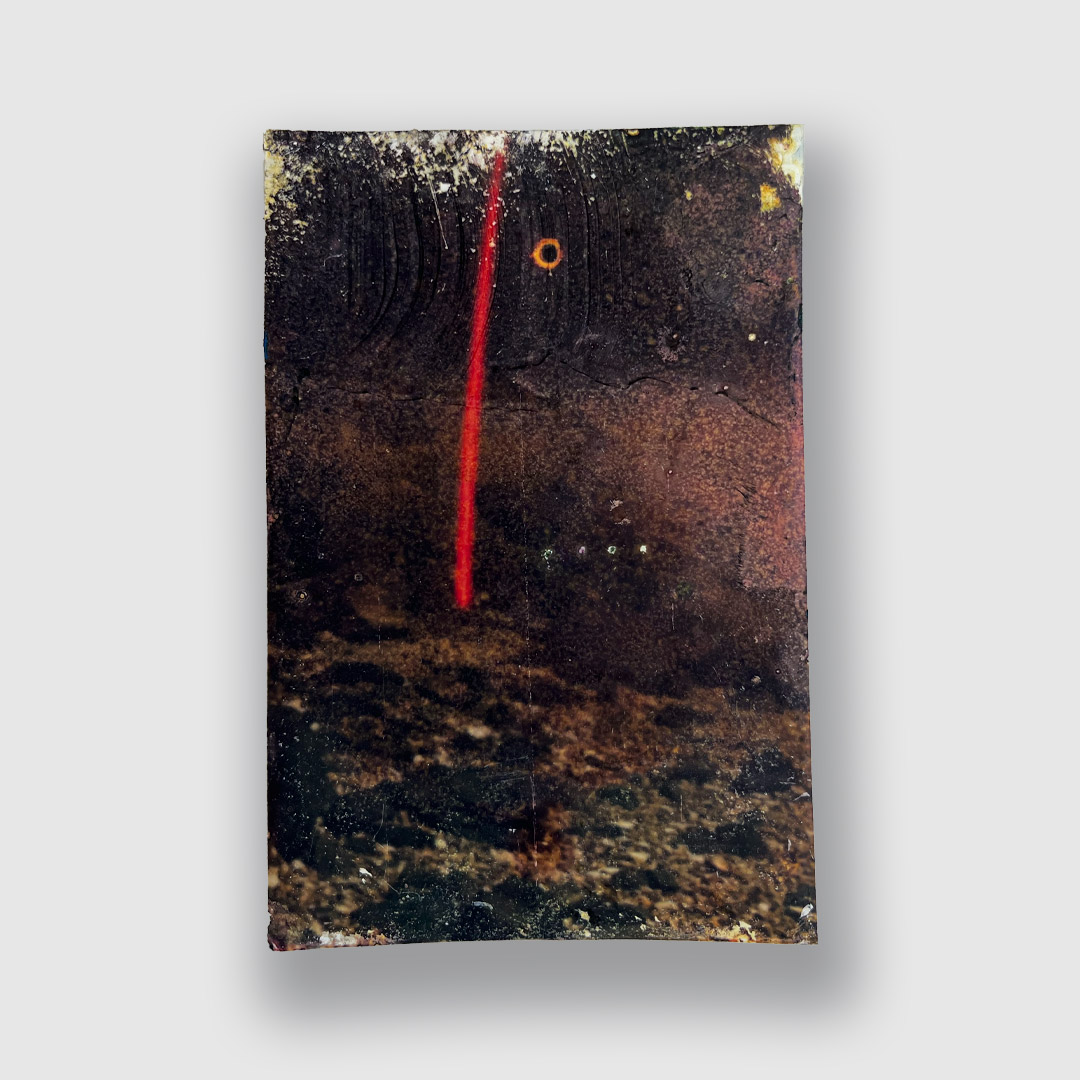
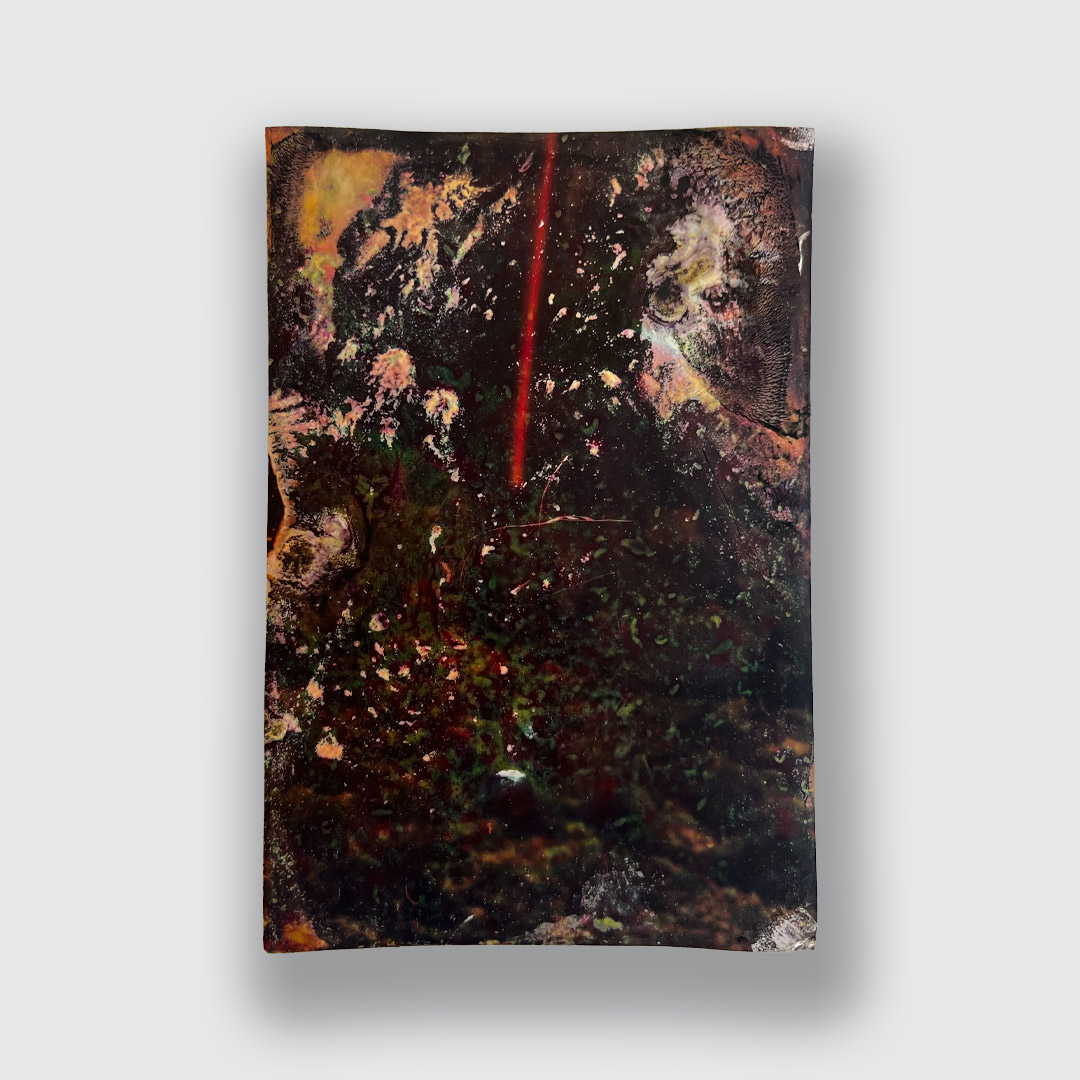
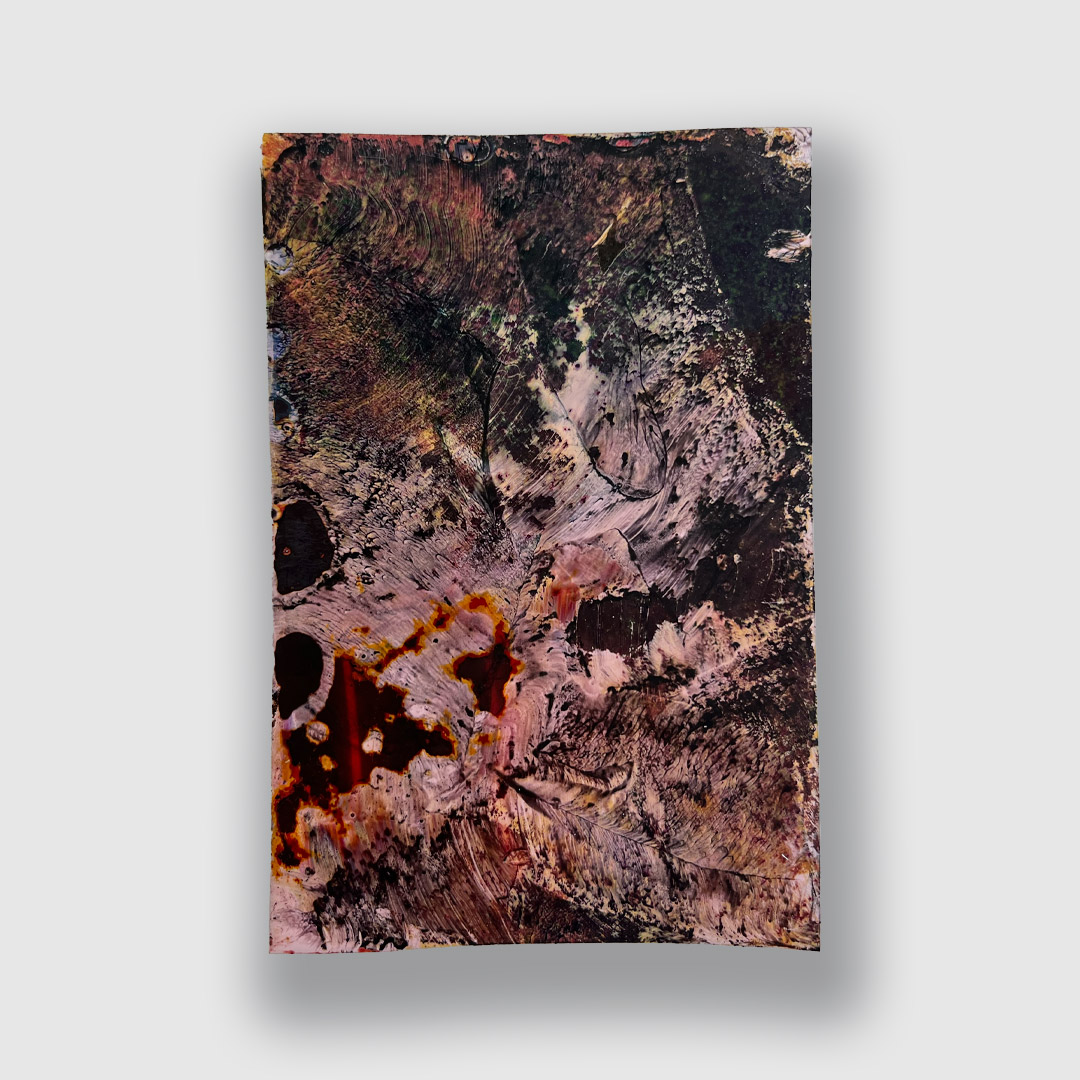
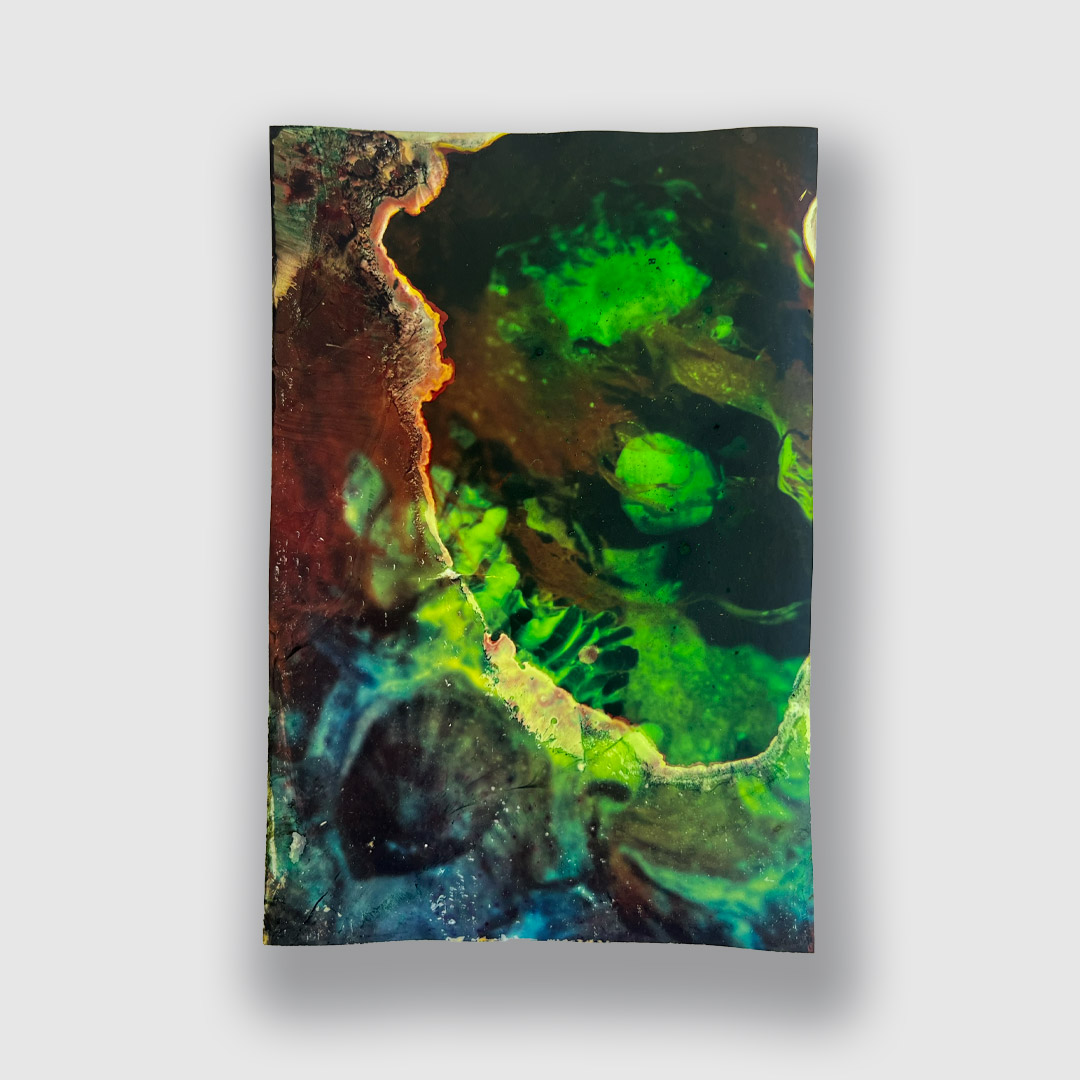
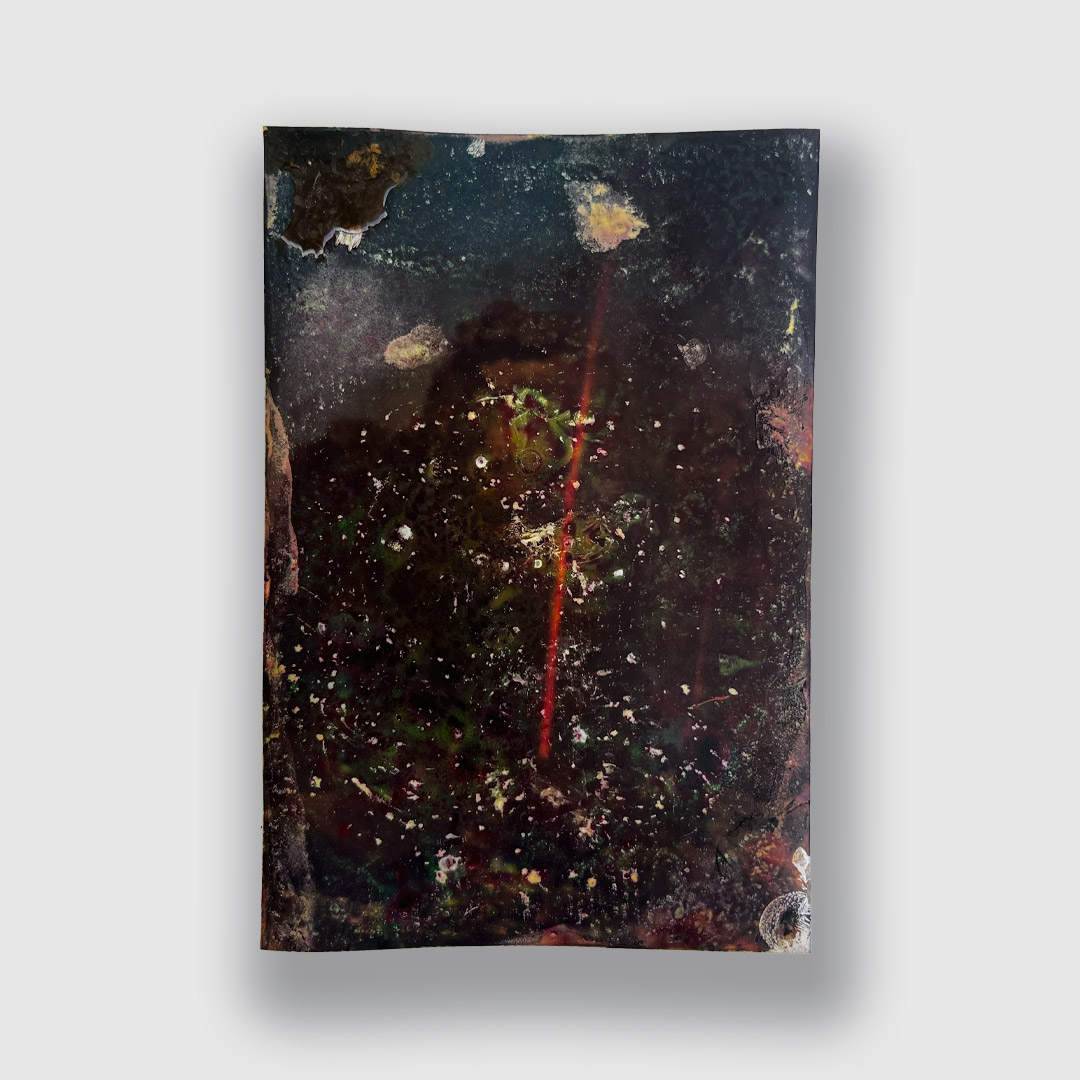
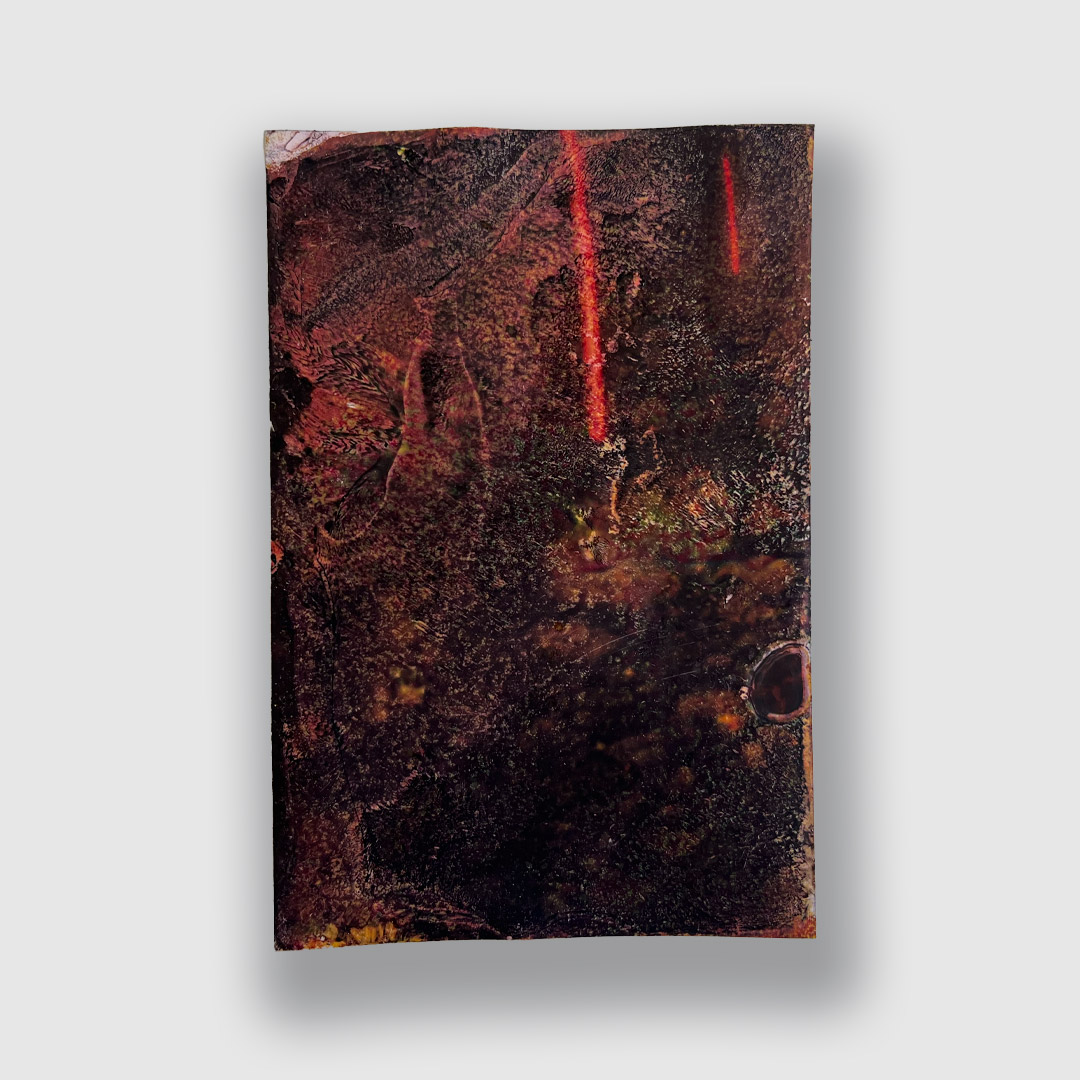
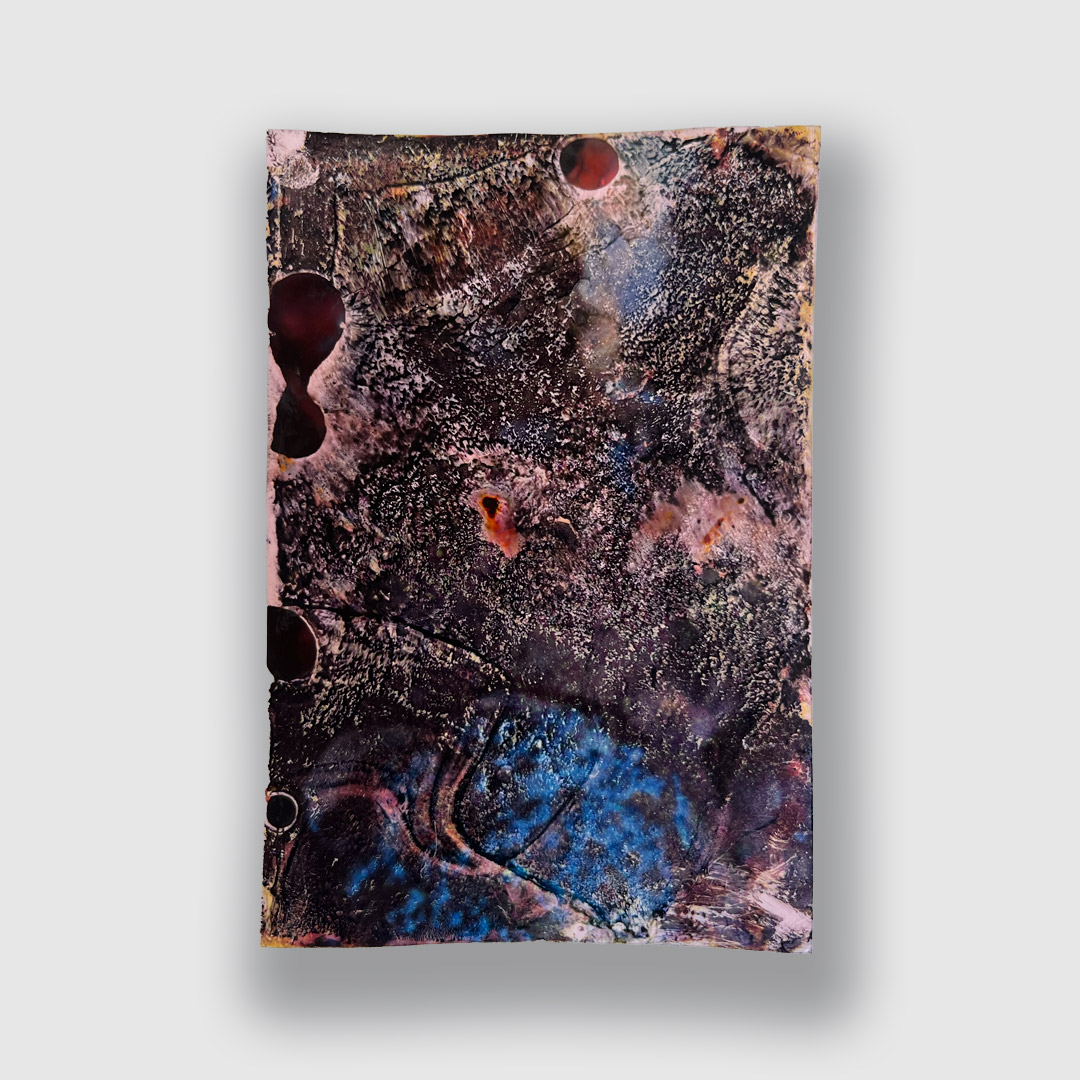
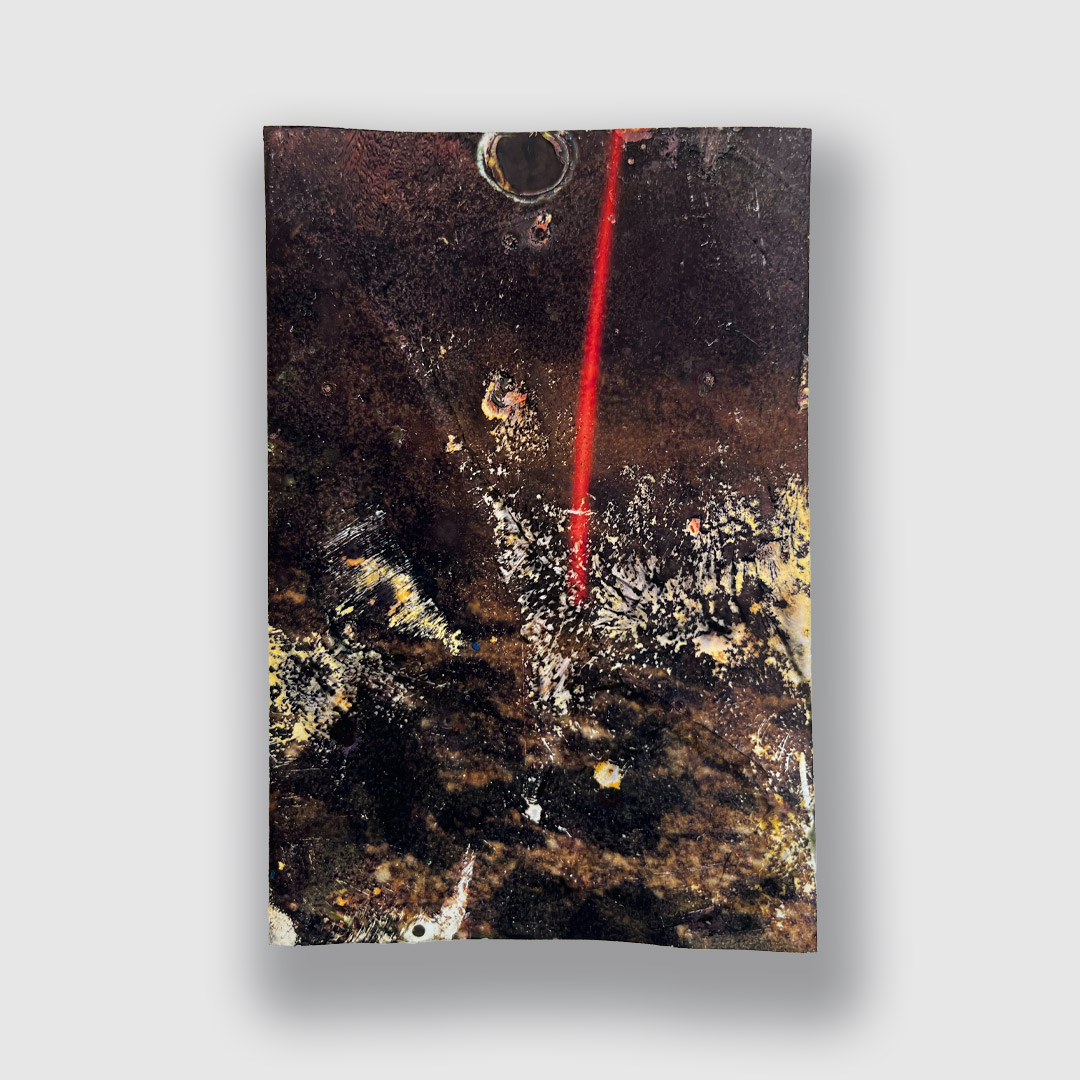
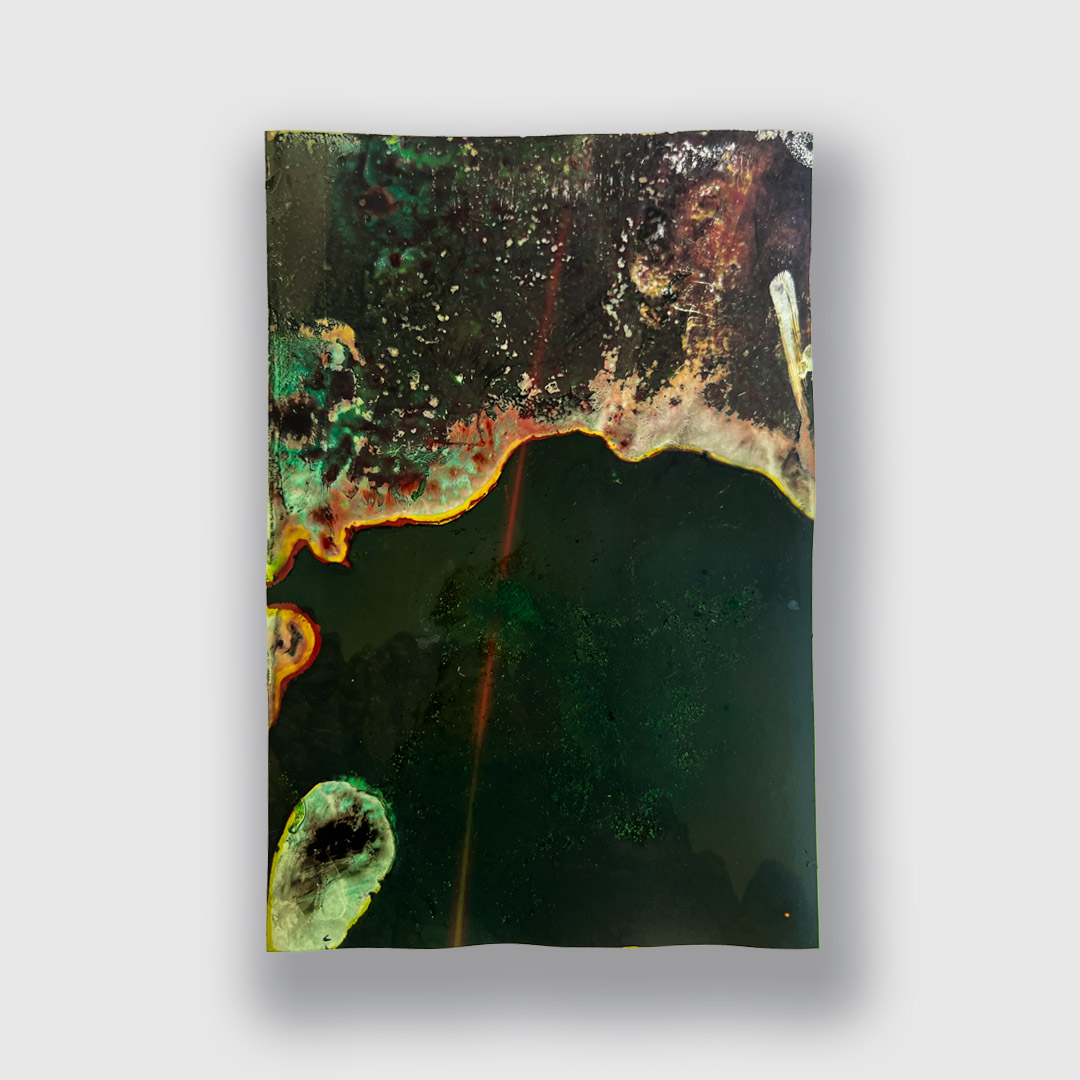
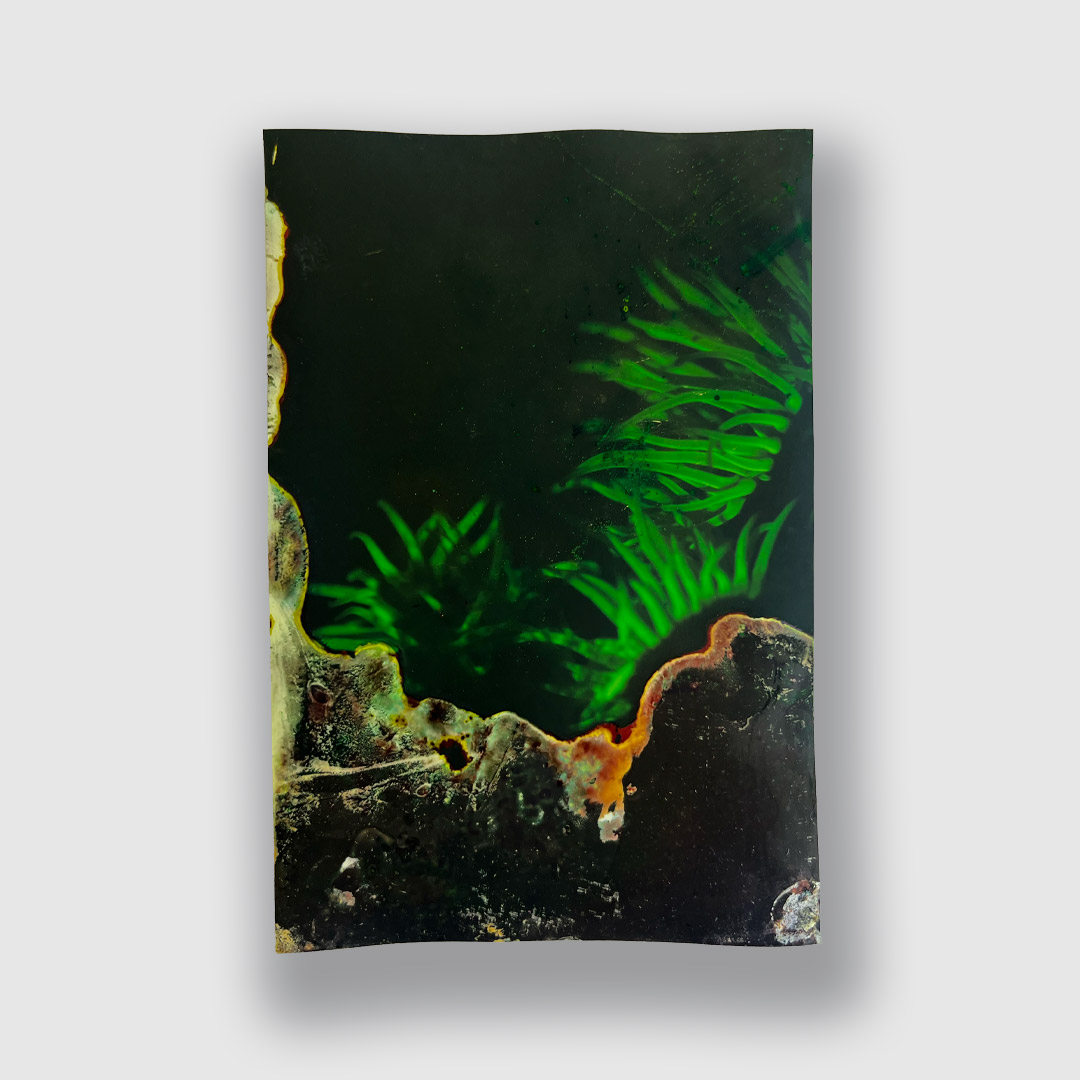
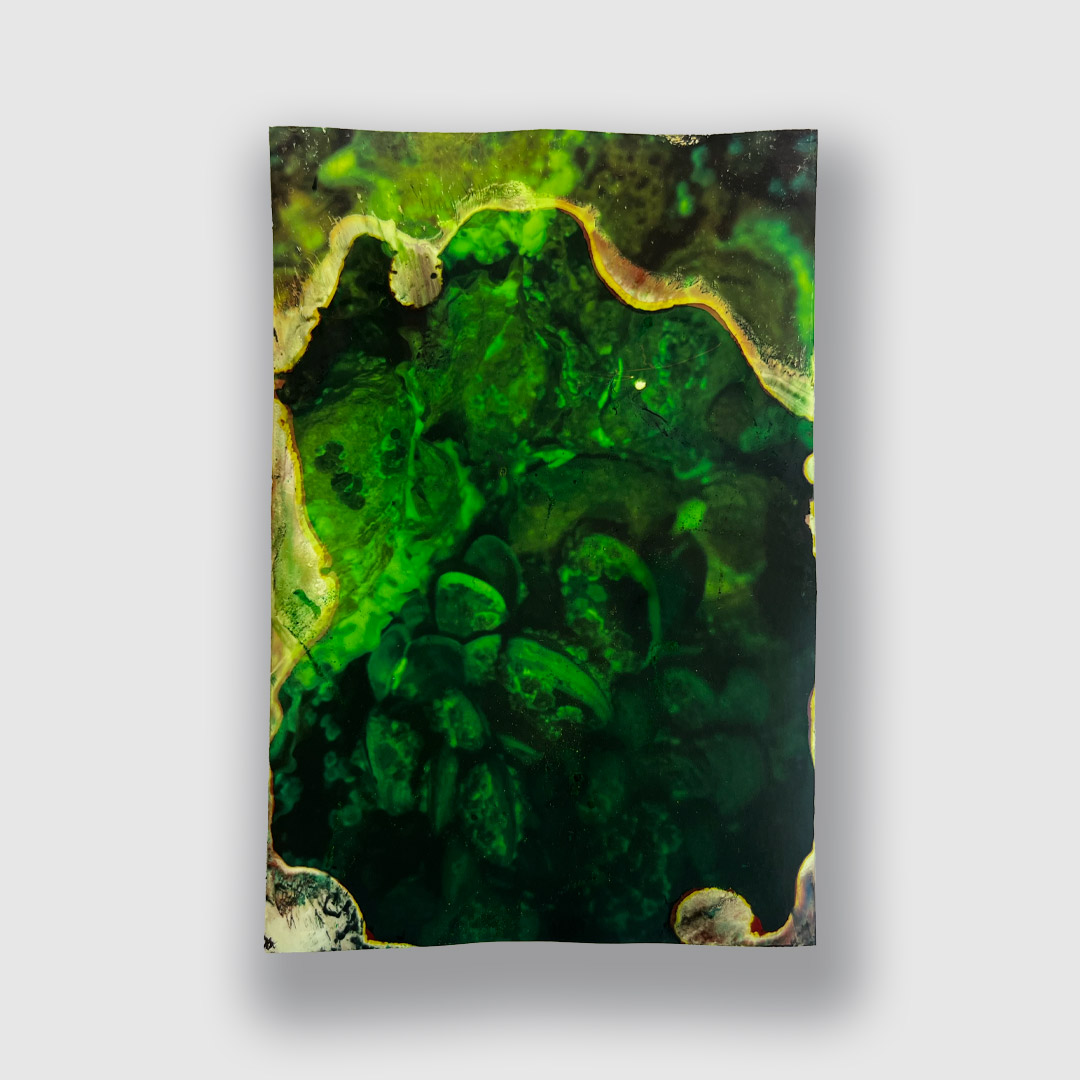
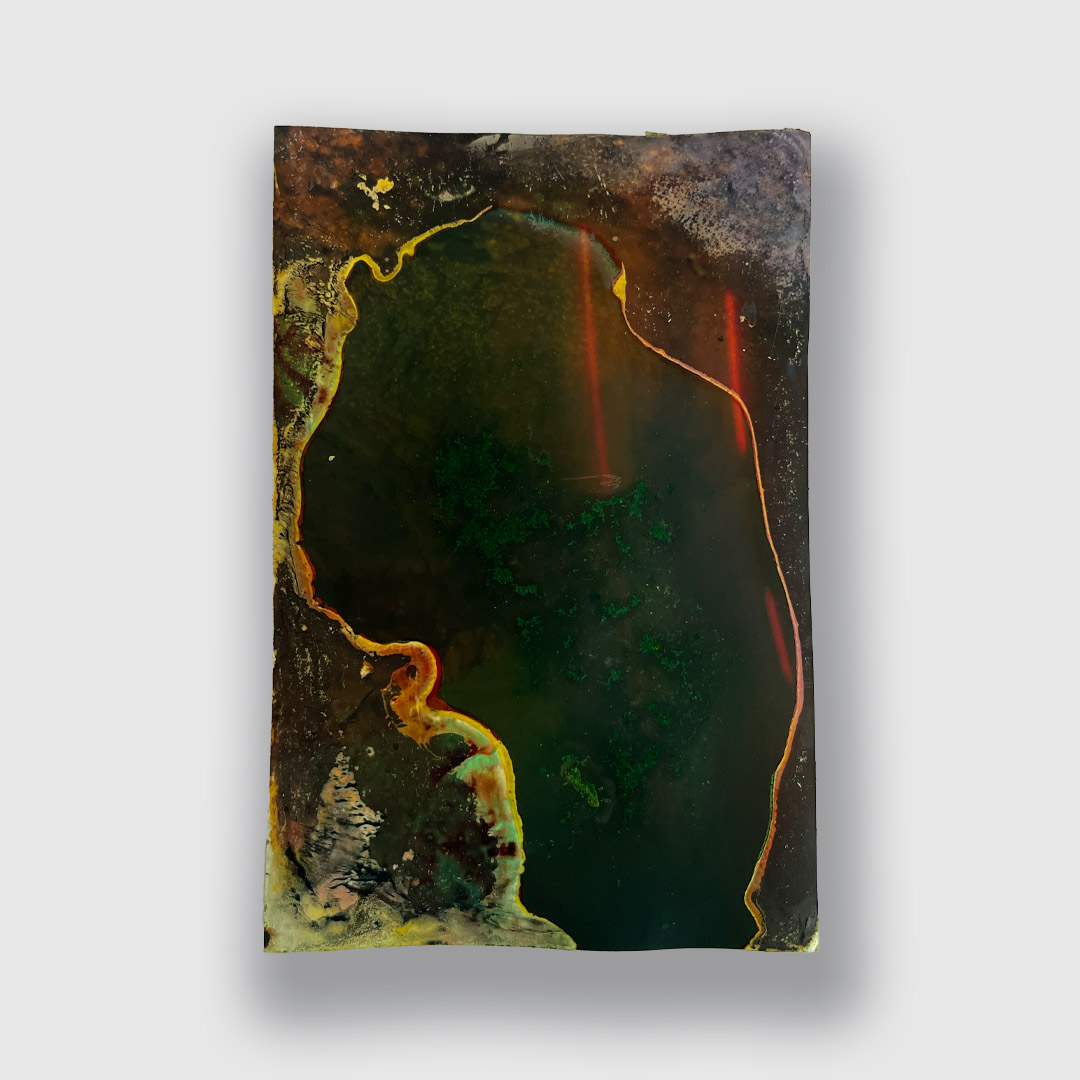
ABOUT ALICE PALLOT
portrait © Quentin Chevrier
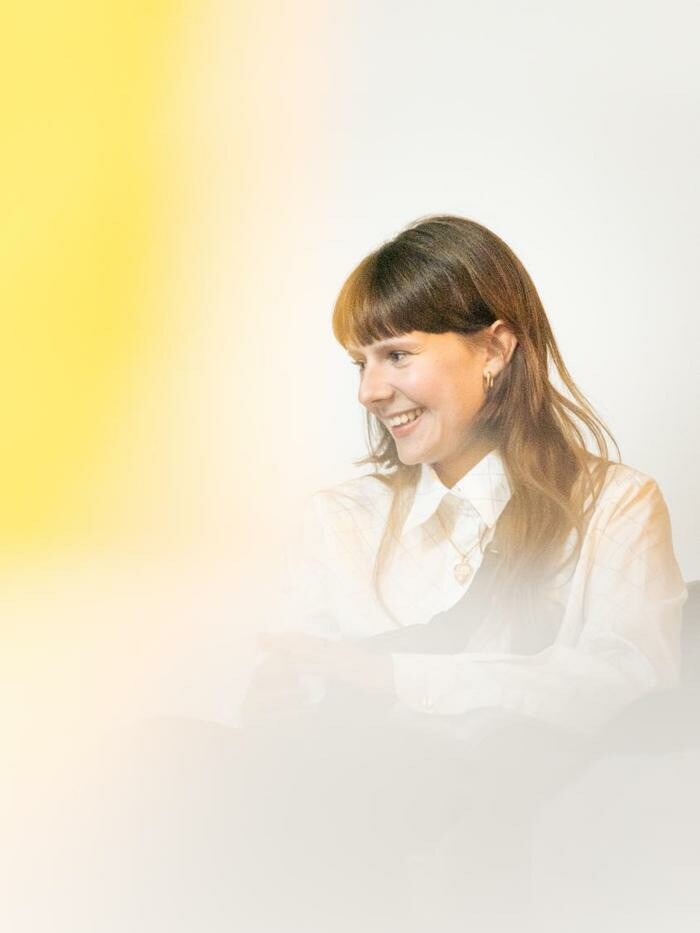
Alice Pallot (born 1995) is a photographic artist who uses the medium of images to question the impact of human activities on the environment. Her images are imbued with a science-fictional imagination, revealing issues that have remained invisible.
Alice Pallot conducts anticipatory surveys of the territories she explores alongside scientists and militant ecologists: the photographer questions the near future by capturing the materiality of reality. Through expeditions, experimentation and research, she examines the links between the sciences developed by human beings and its impact on our constantly changing natural environment. She gleans rubbish from the places she questions and then uses it as photographic filters.
Read More
The photographer then creates an immersive experience of the polluted natural world: an inventory of the ailing beauty of our world damaged by the Antropocene era.
She studied photography at ENSAV La Cambre (Brussels, BE), from which she graduated with a Bachelor’s degree and a Master’s degree with honours in June 2018. The same year, she took part in an exchange at ECAL (Lausanne, CH) and won the Roger De Conynck prize. Alice Pallot has also published the books Land (2016), Himero (2020) Suillus (2021, reed. 2022), Algues maudites, a sea of tears (Area books, 2023) and co-founded the De Anima collective.
Alice Pallot is a prizewinner at the Rencontres de la jeune photographie internationale, Villa Perochon, 2023/2024, to produce the second phase of research and production for the project “Algues maudites, a sea of tears”, which will be a living installation about scientific accidents. She is also a prizewinner of the Leica La Gacilly Prize for New Environmental Writing 2024. In January 2024, Alice Pallot is a finalist for the BMW ART MAKERS Prize and the Fondation des Treilles Residence for Photography.
Alice Pallot is a prizewinner at the Rencontres de la jeune photographie internationale, Villa Perochon, 2023/2024, to produce the second phase of research and production for the project “Algues maudites, a sea of tears”, which will be a living installation about scientific accidents. She is also a prizewinner of the Leica La Gacilly Prize for New Environmental Writing 2024. In January 2024, Alice Pallot is a finalist for the BMW ART MAKERS Prize and the Fondation des Treilles Residence for Photography.
THE EYES CLOSE UP

